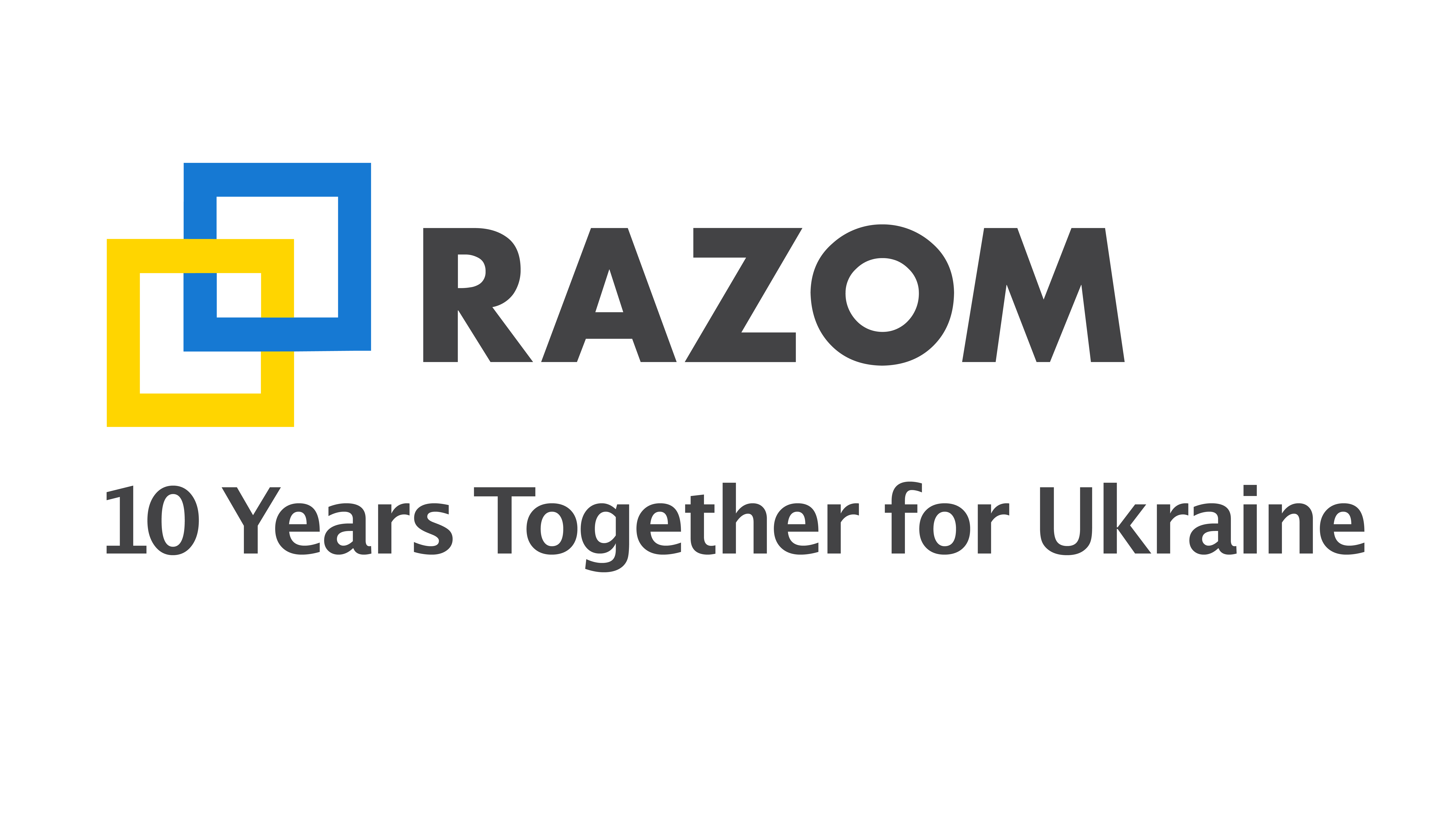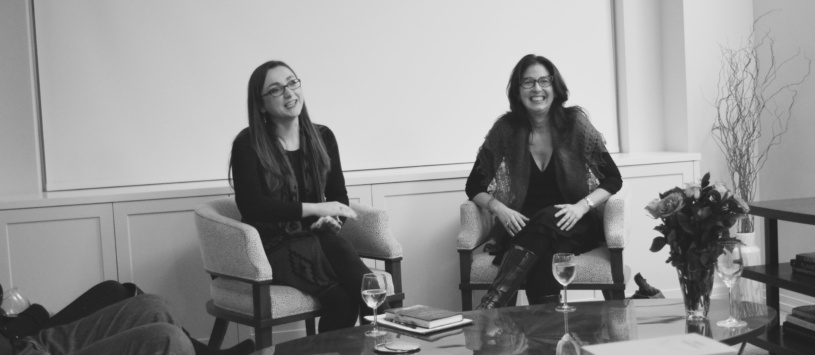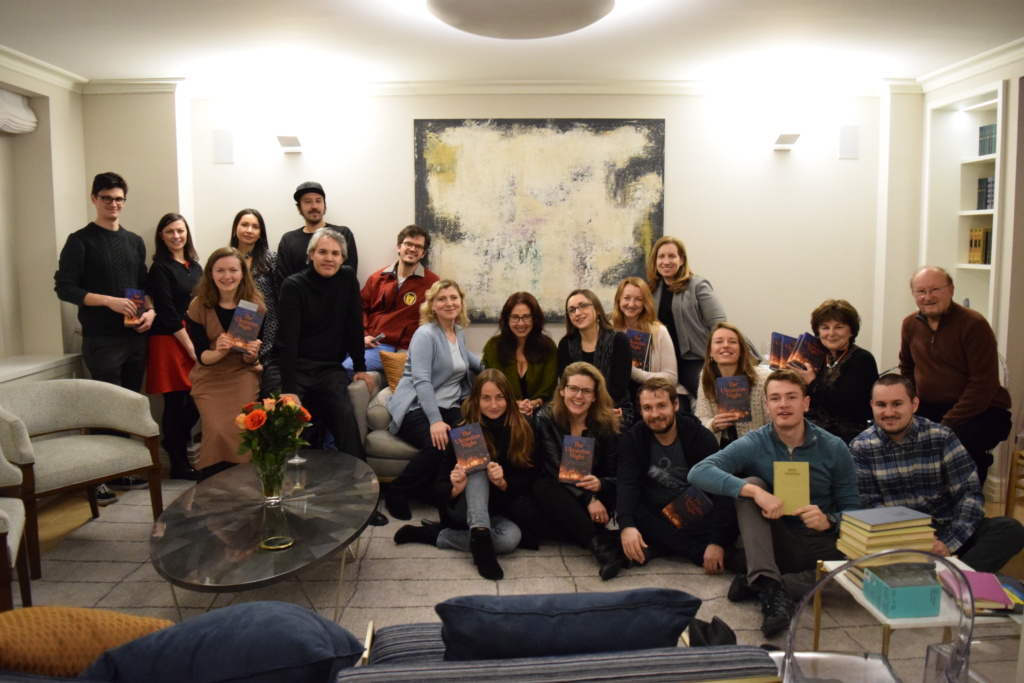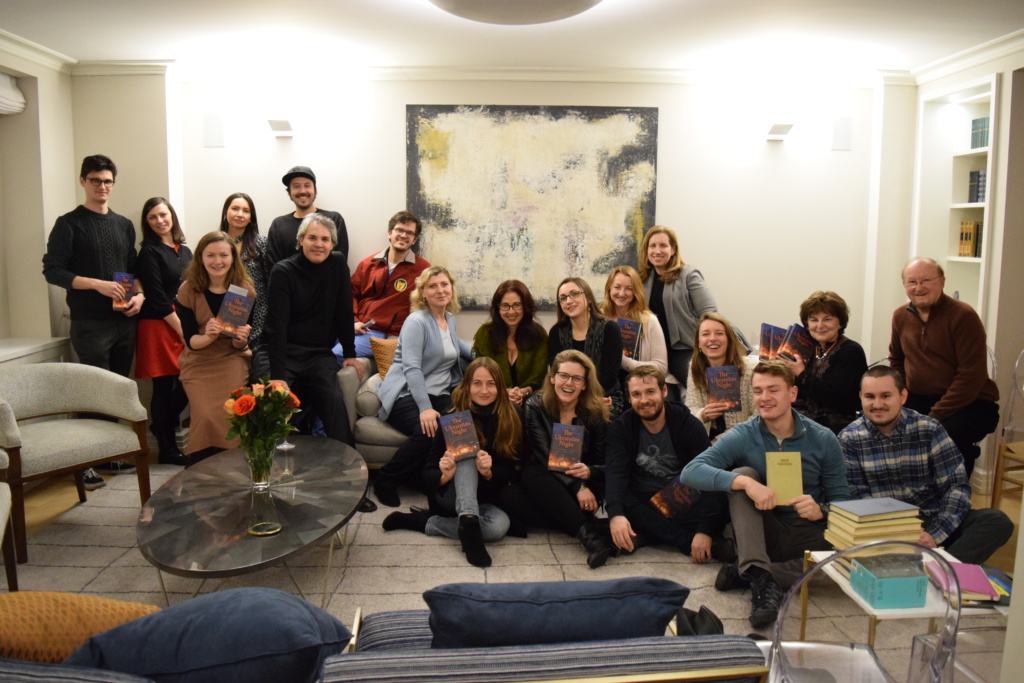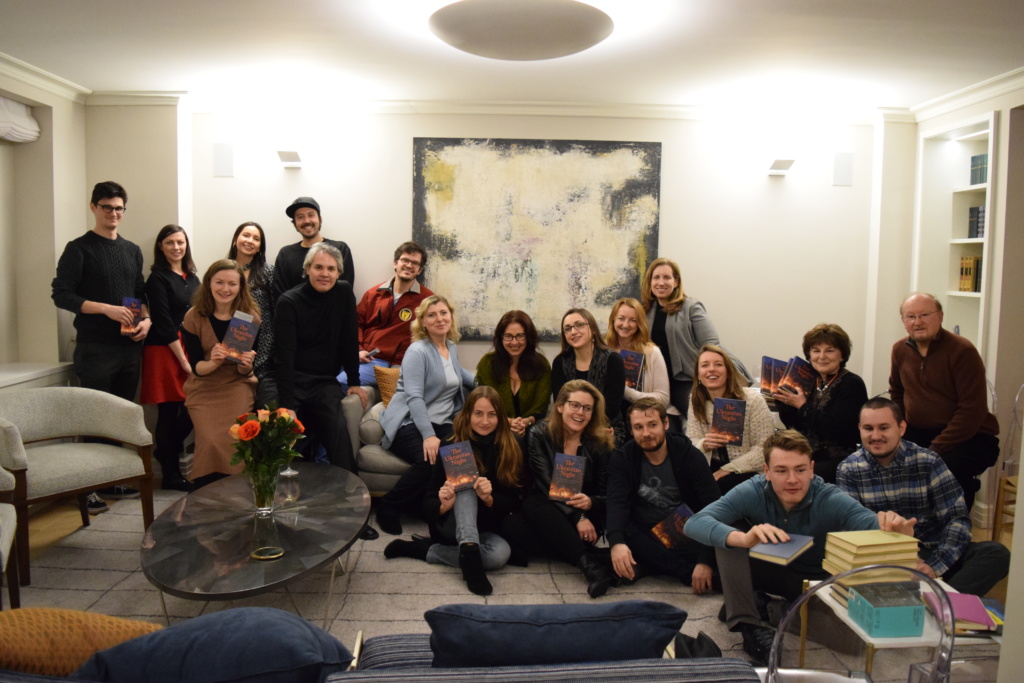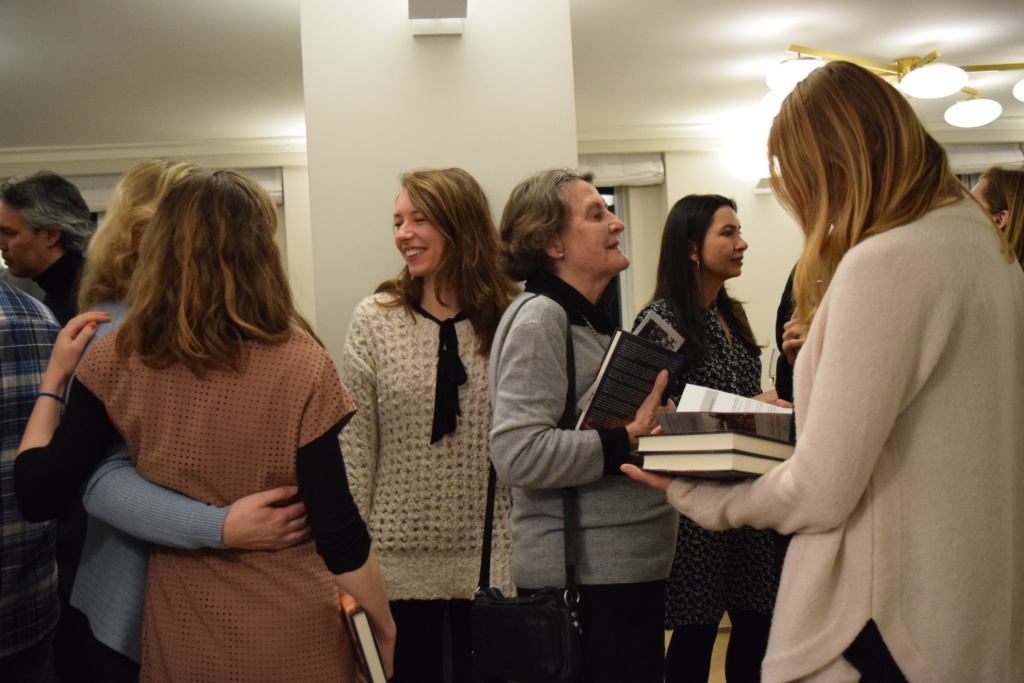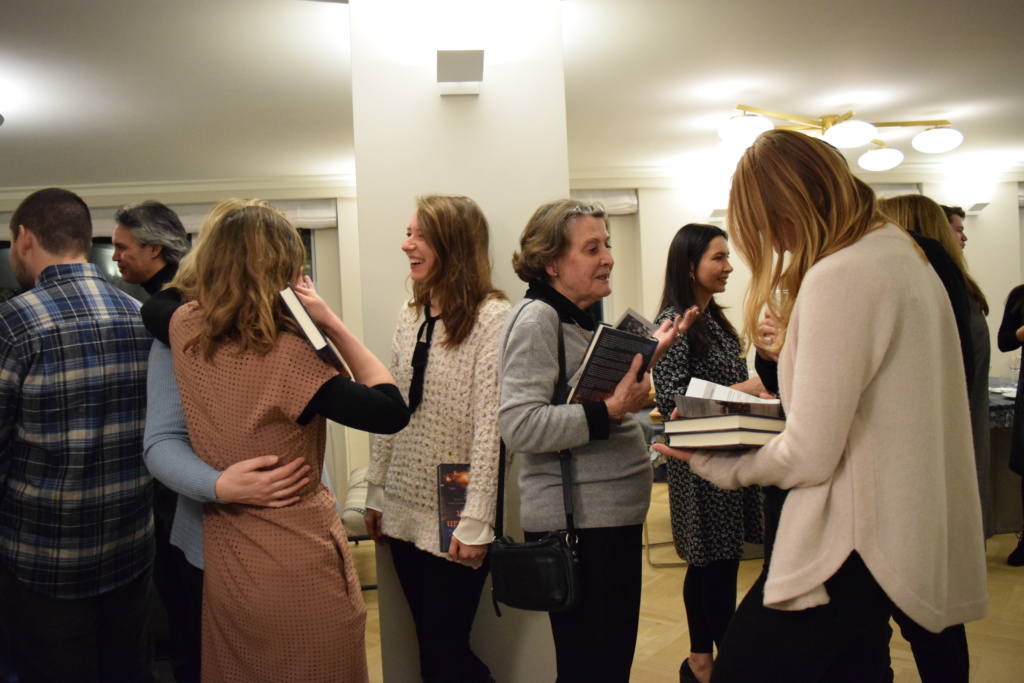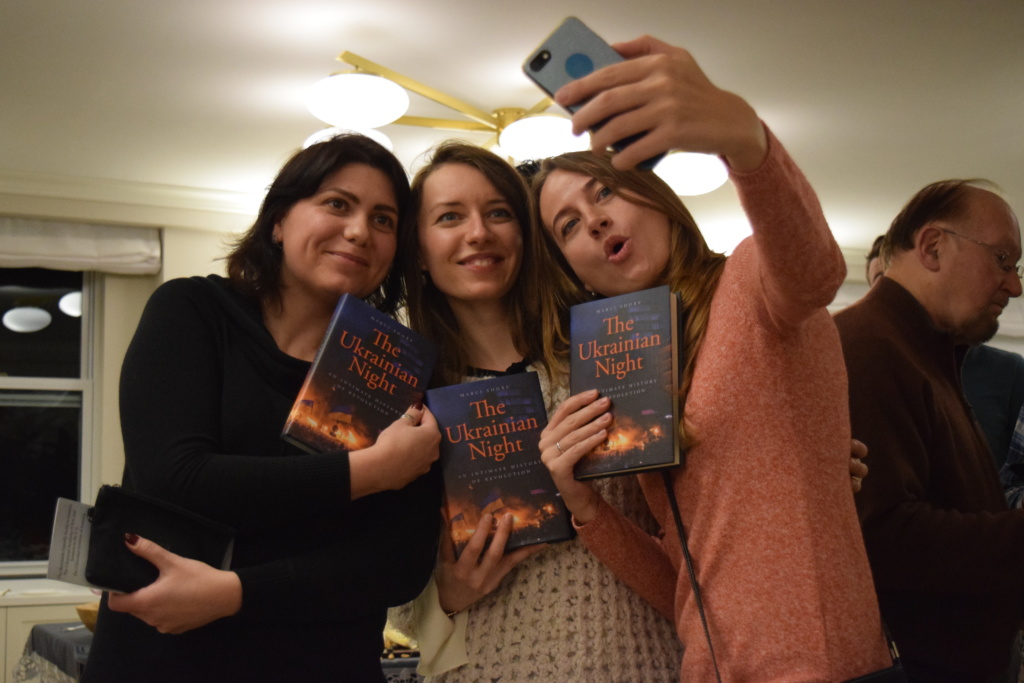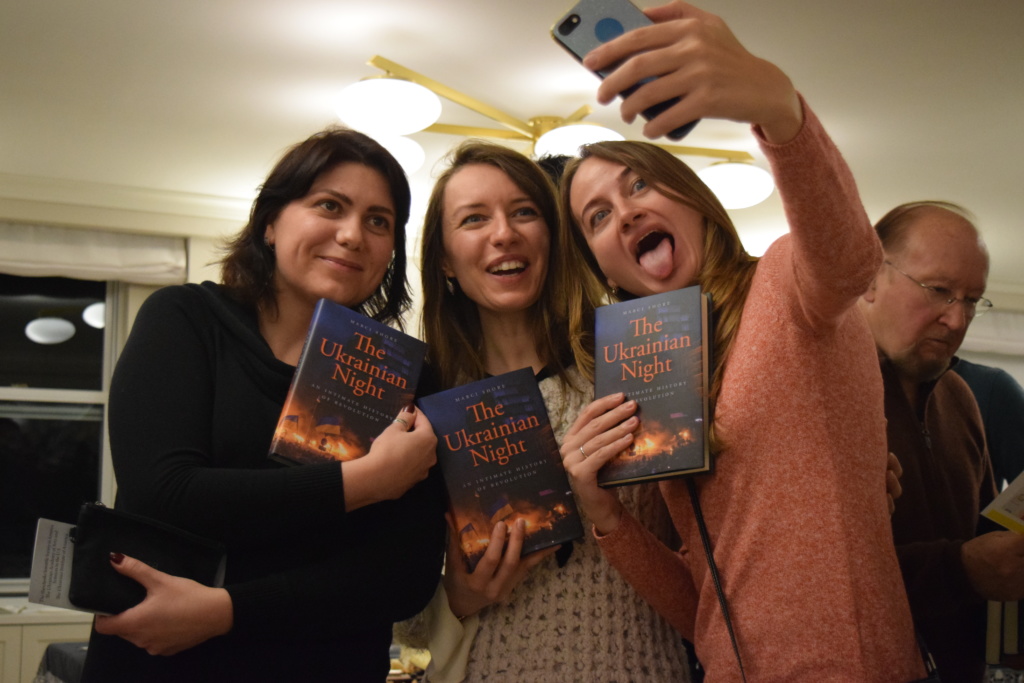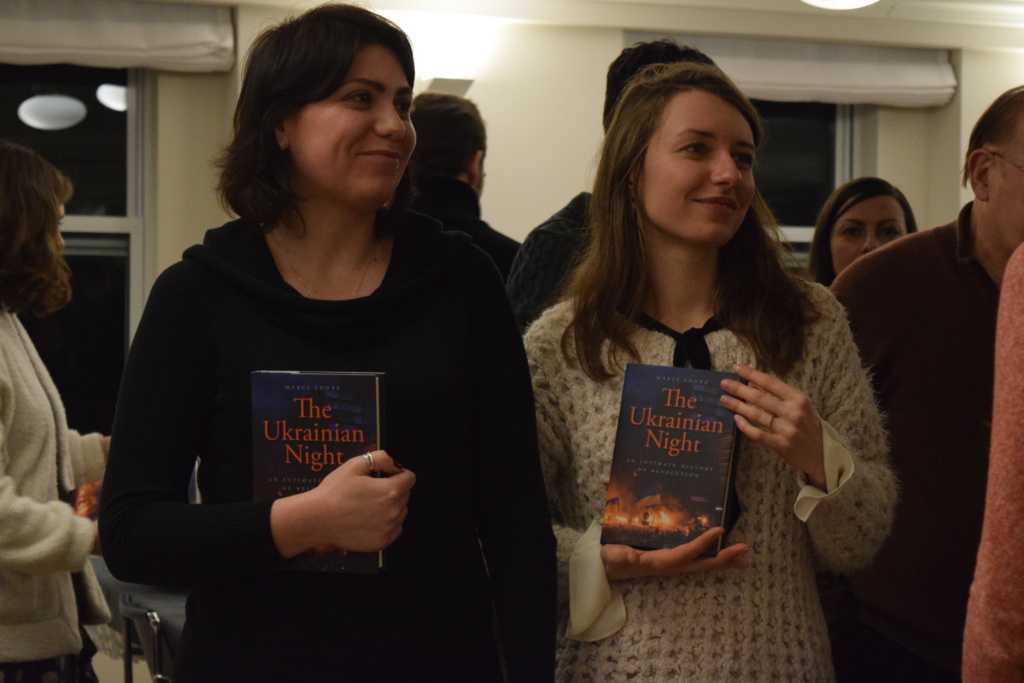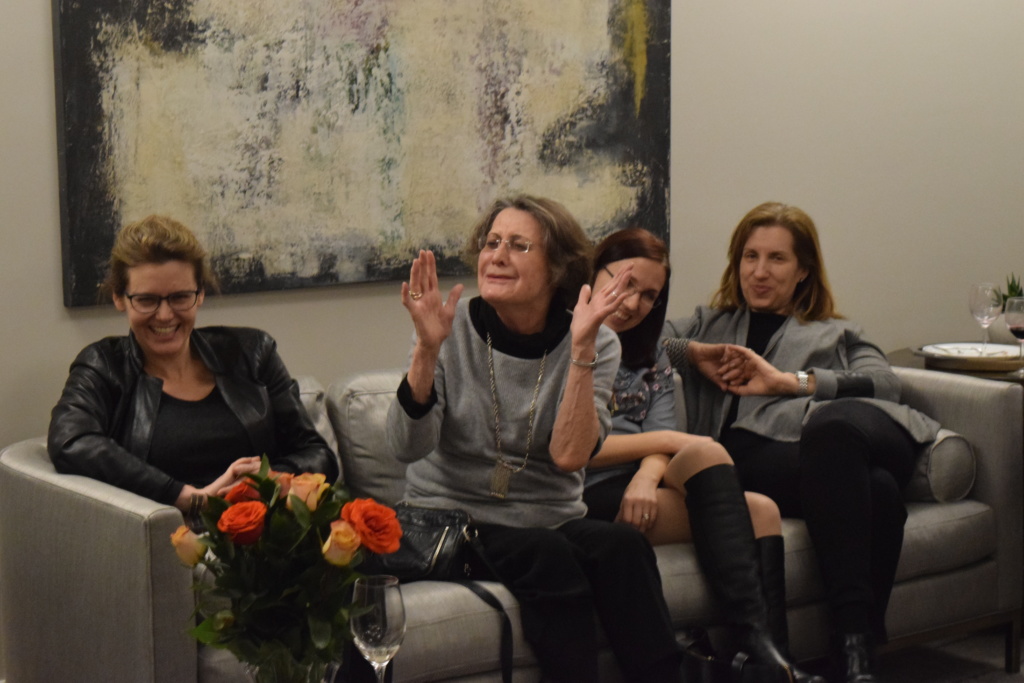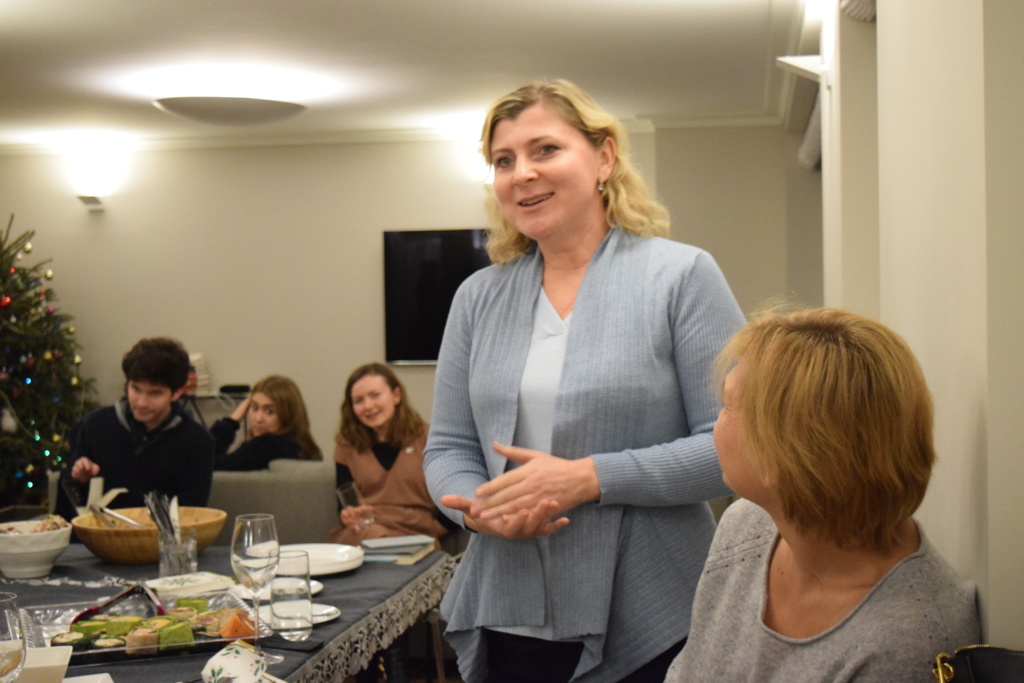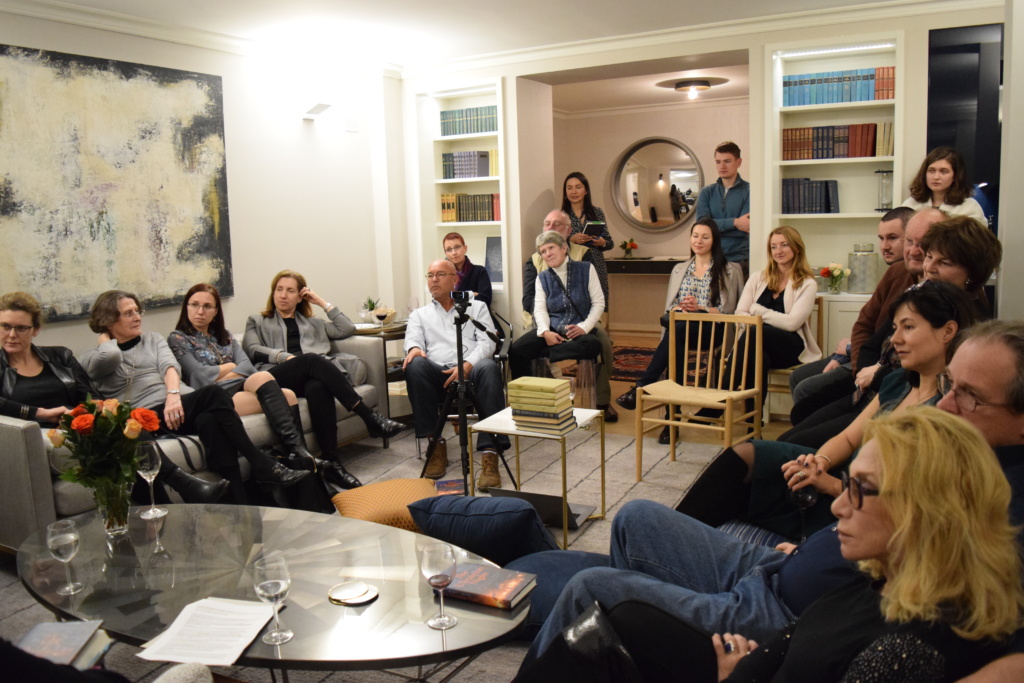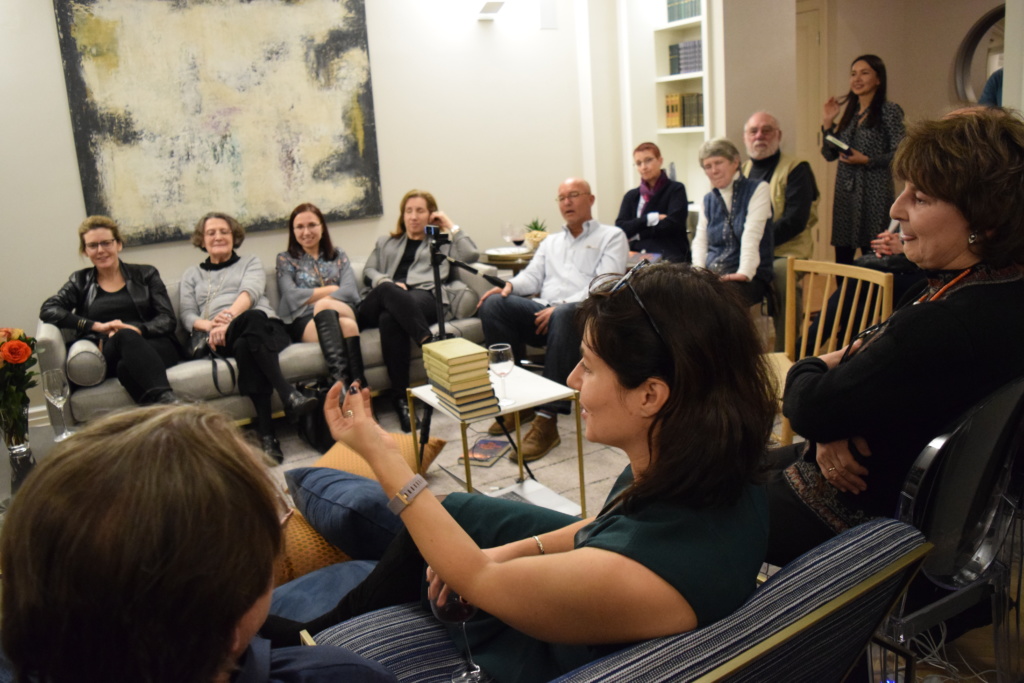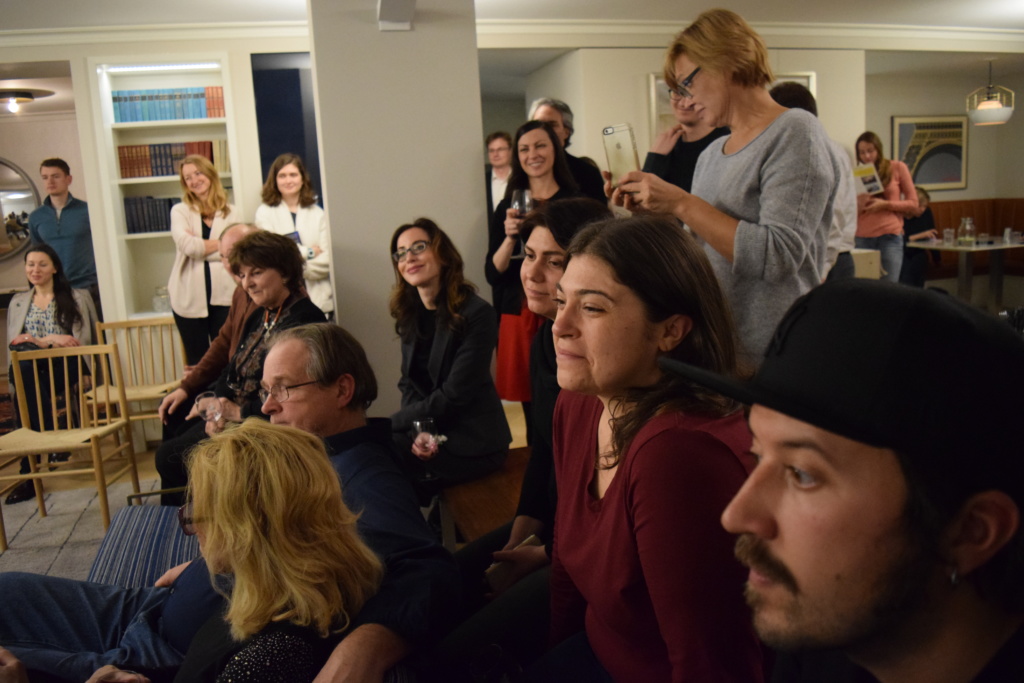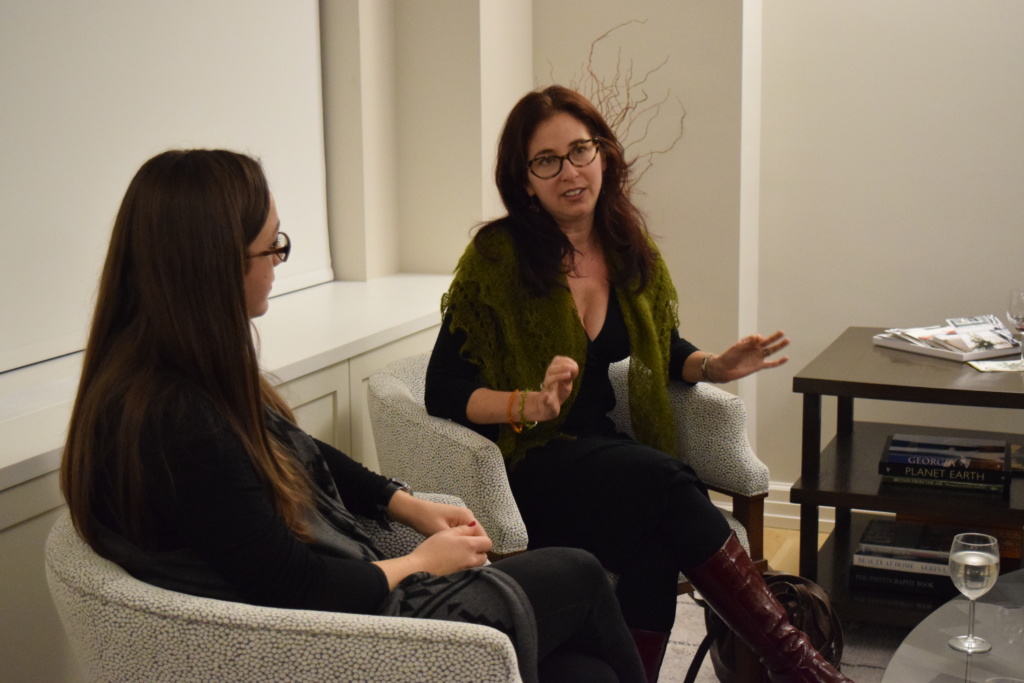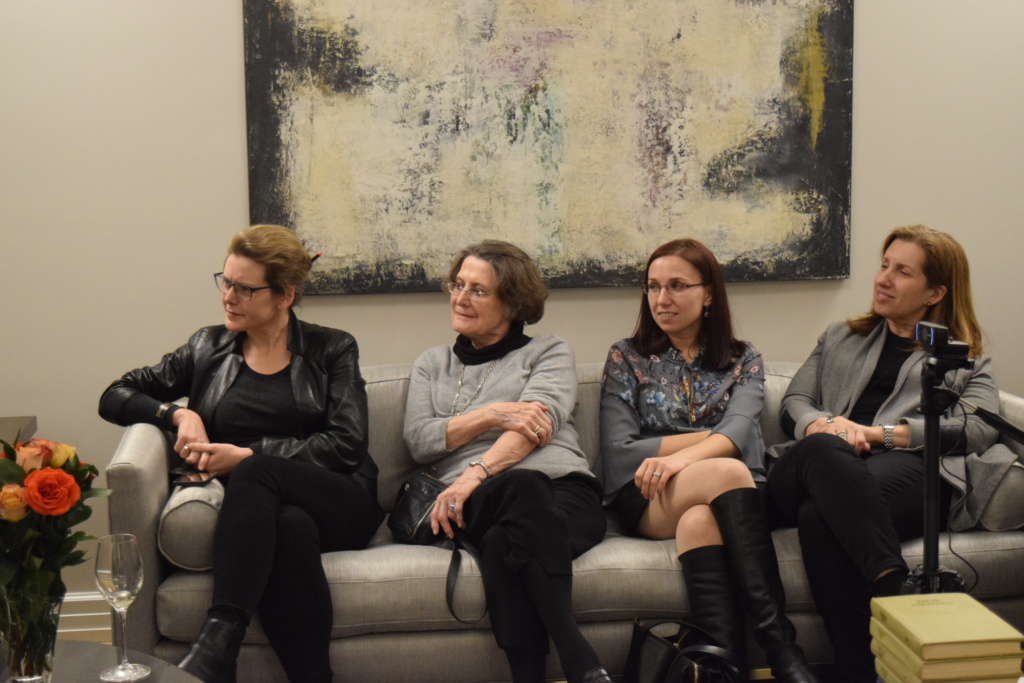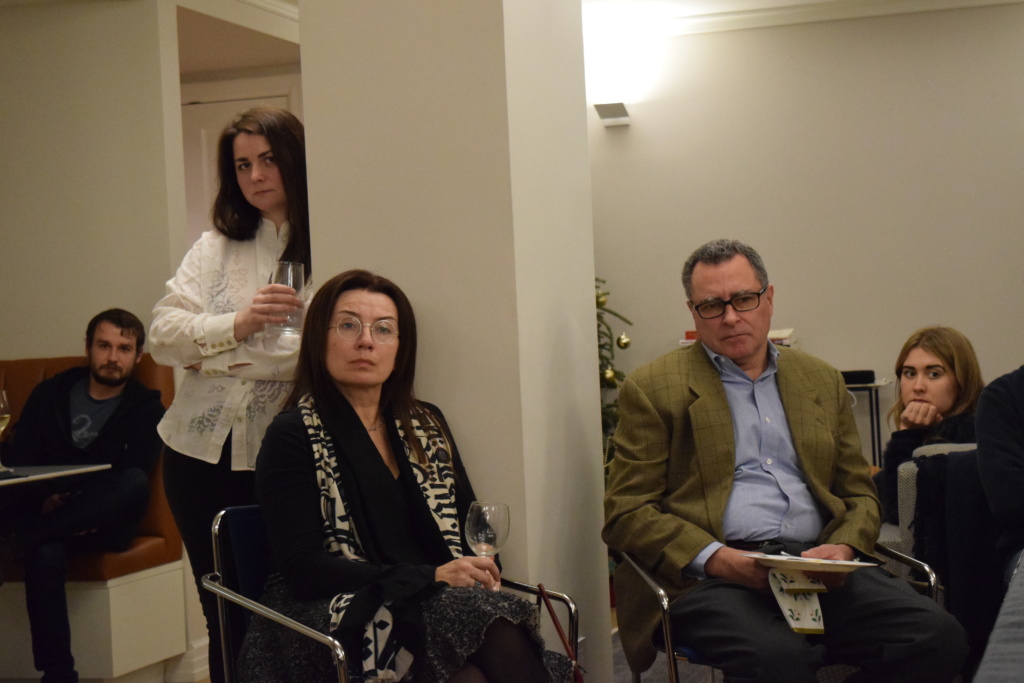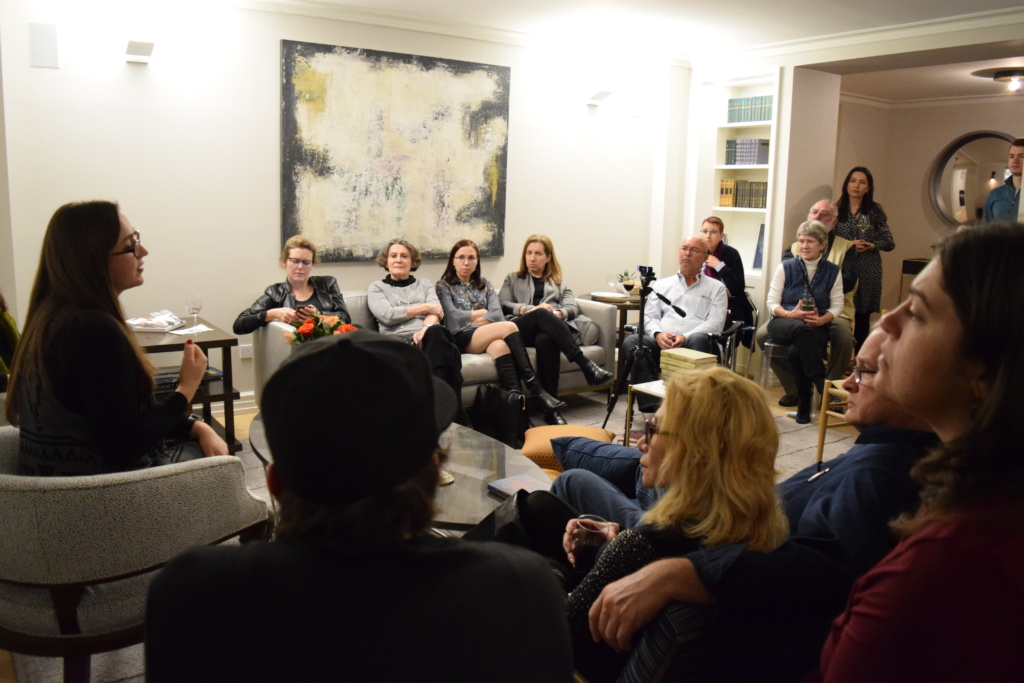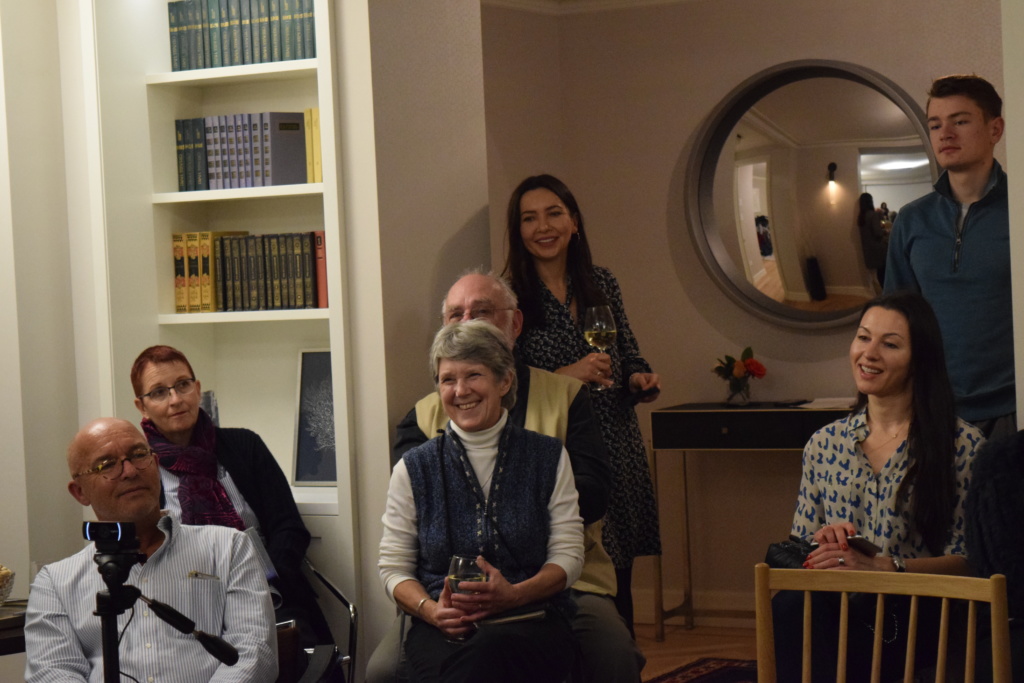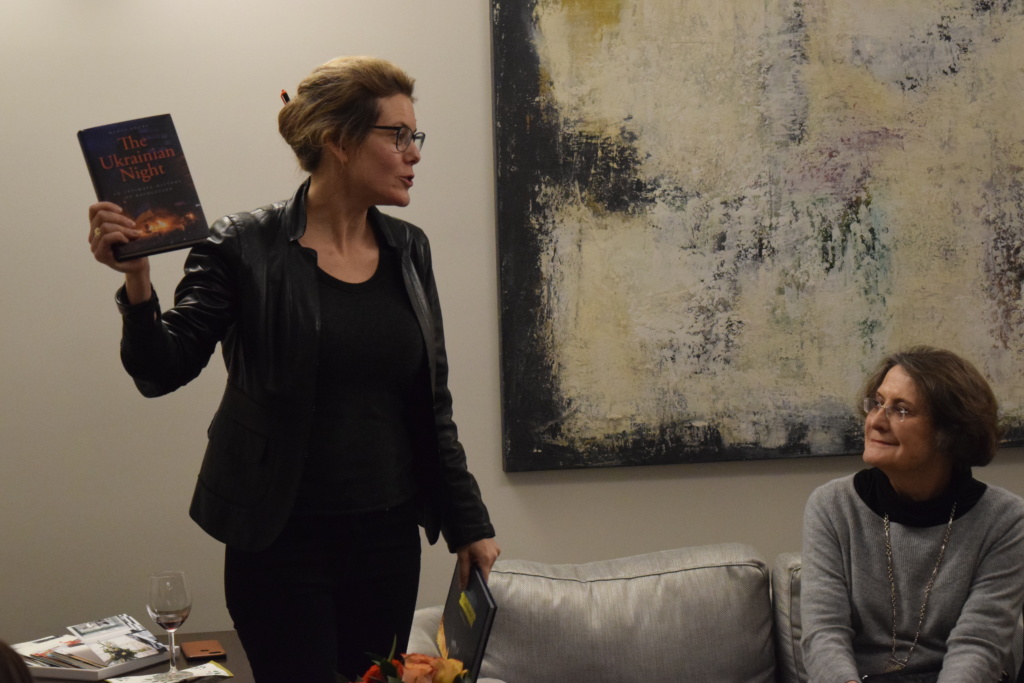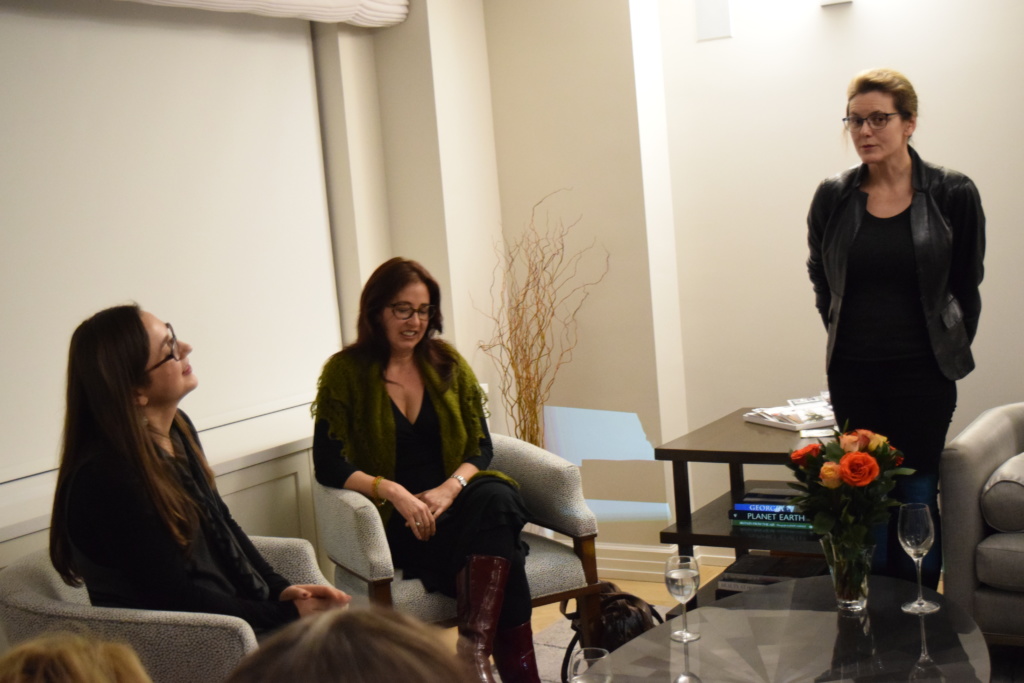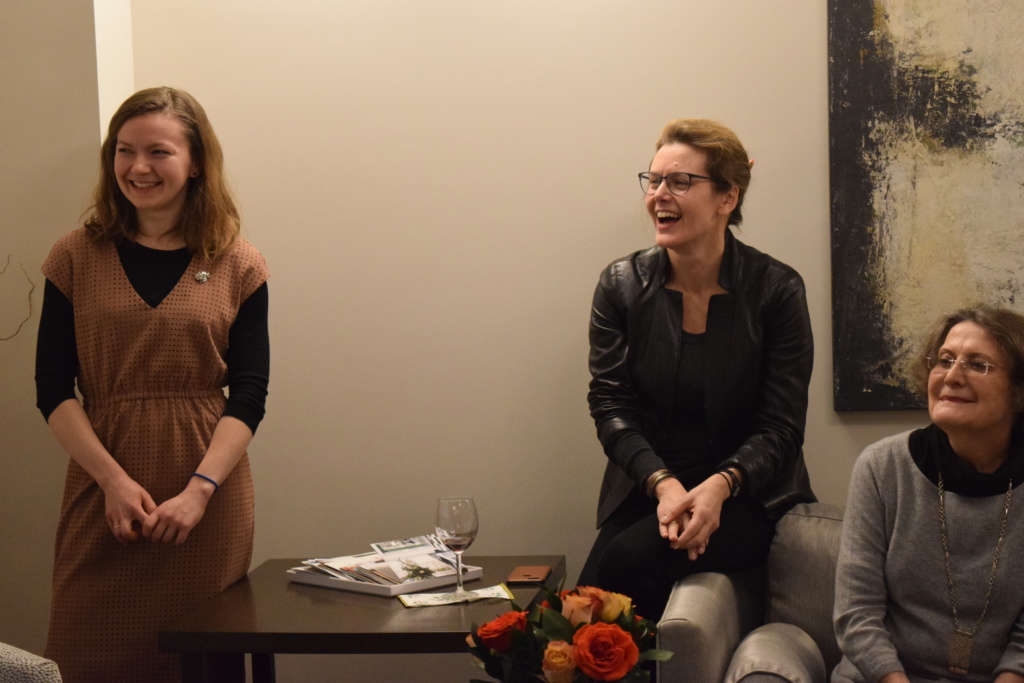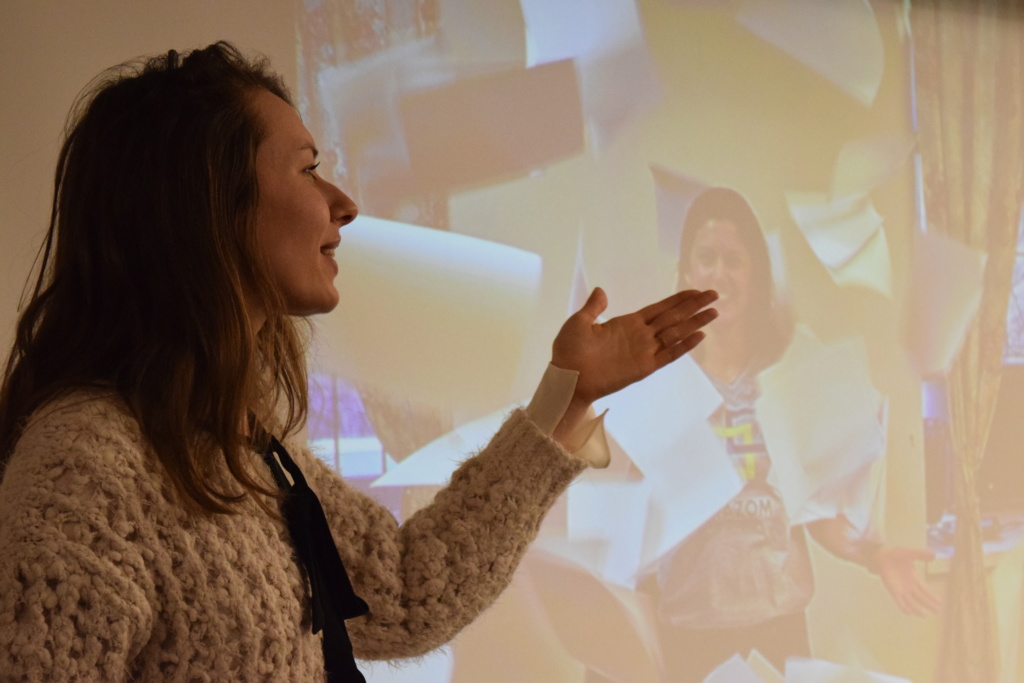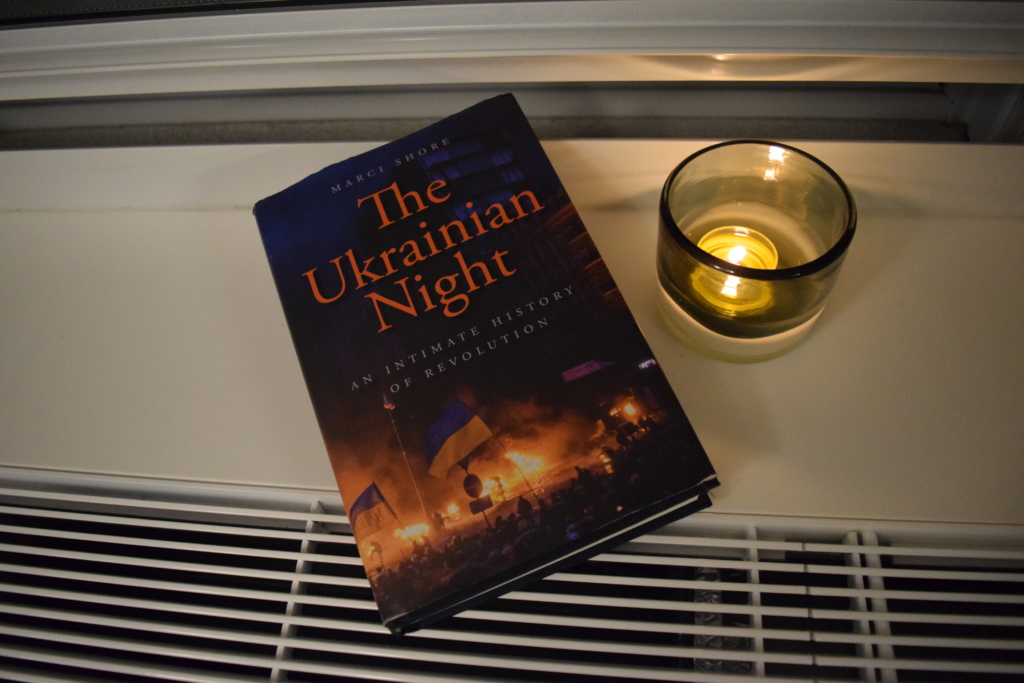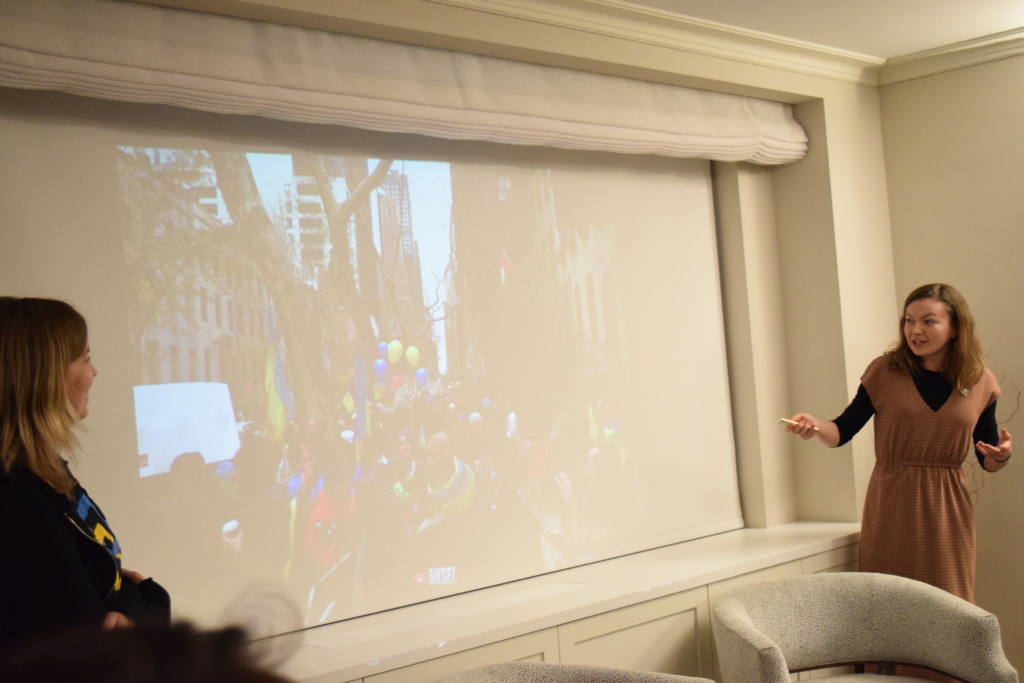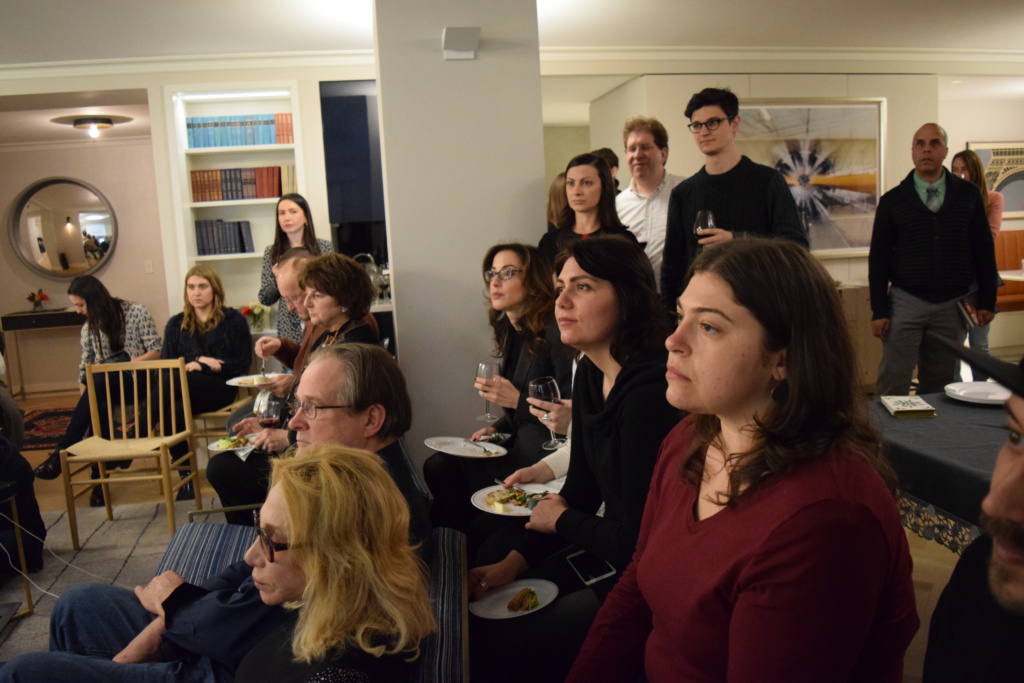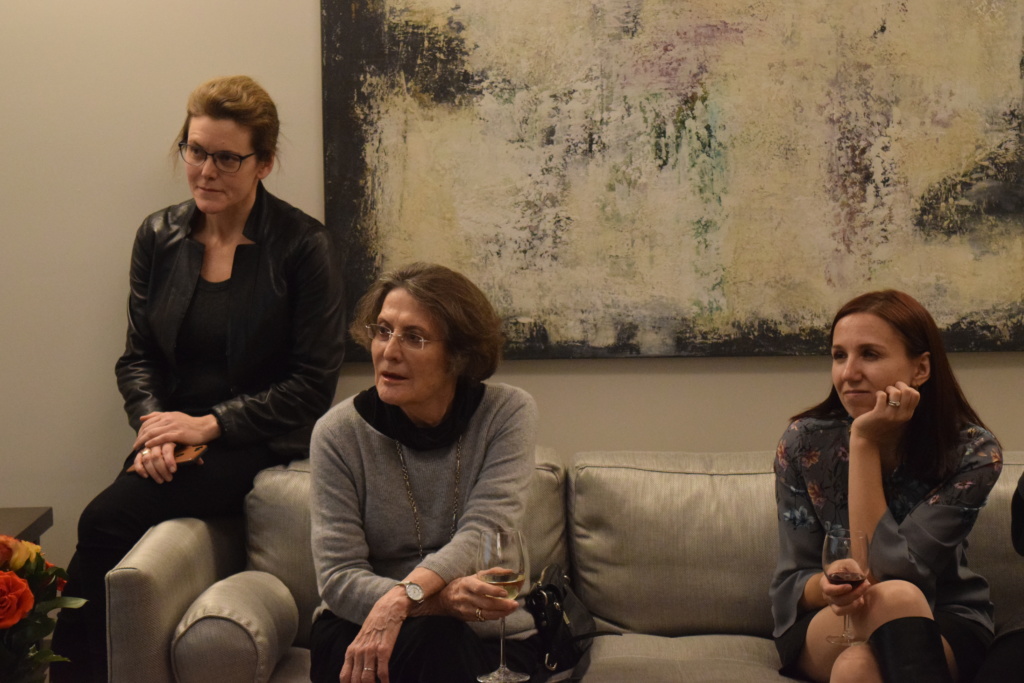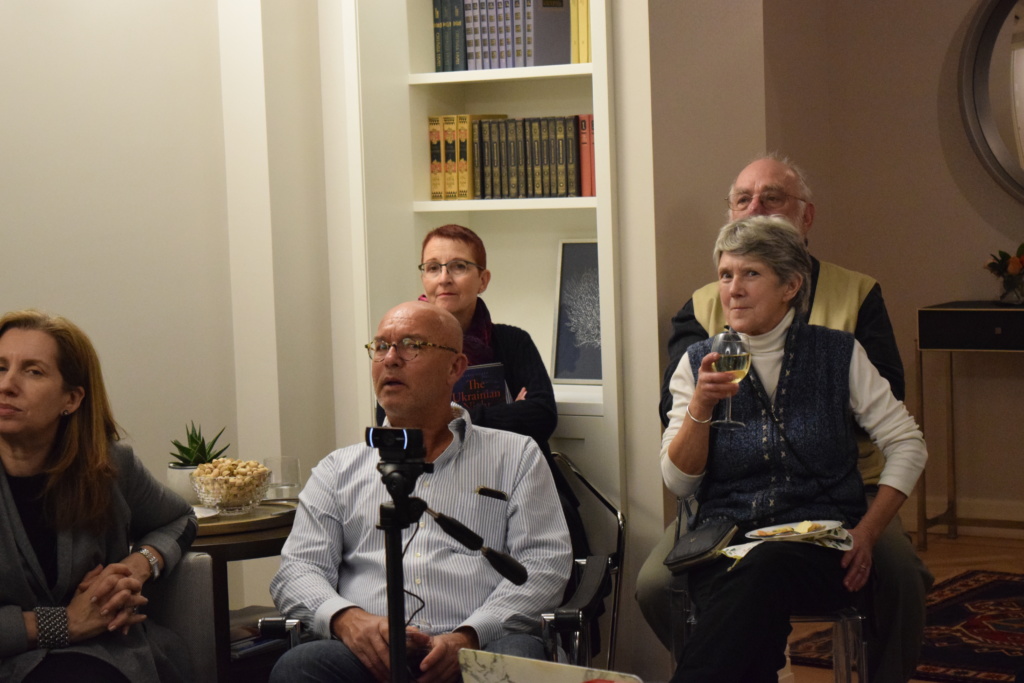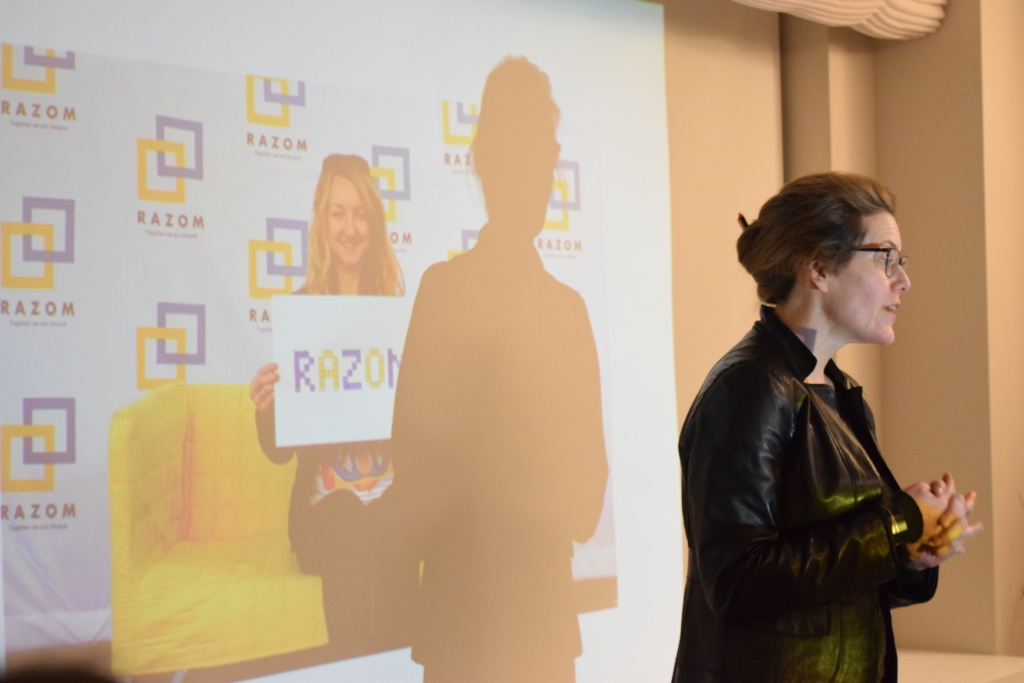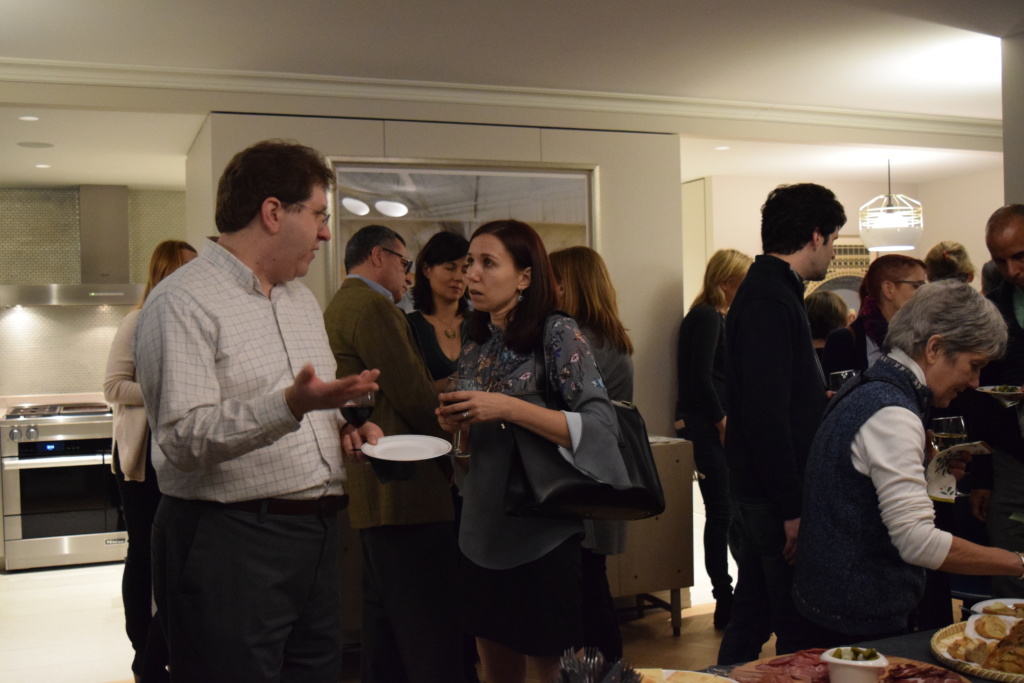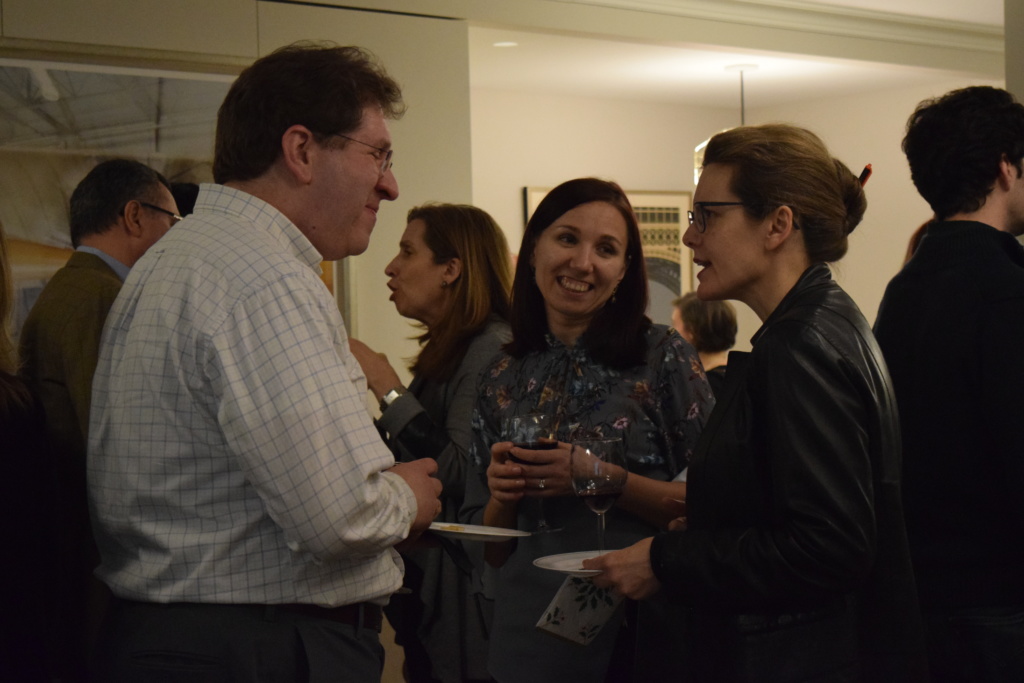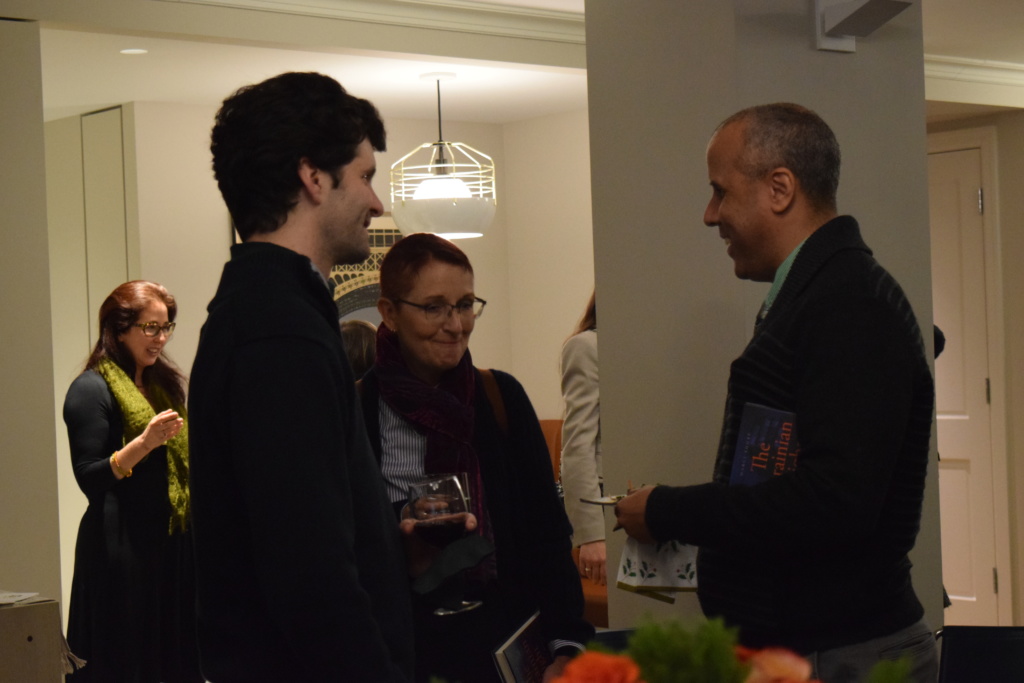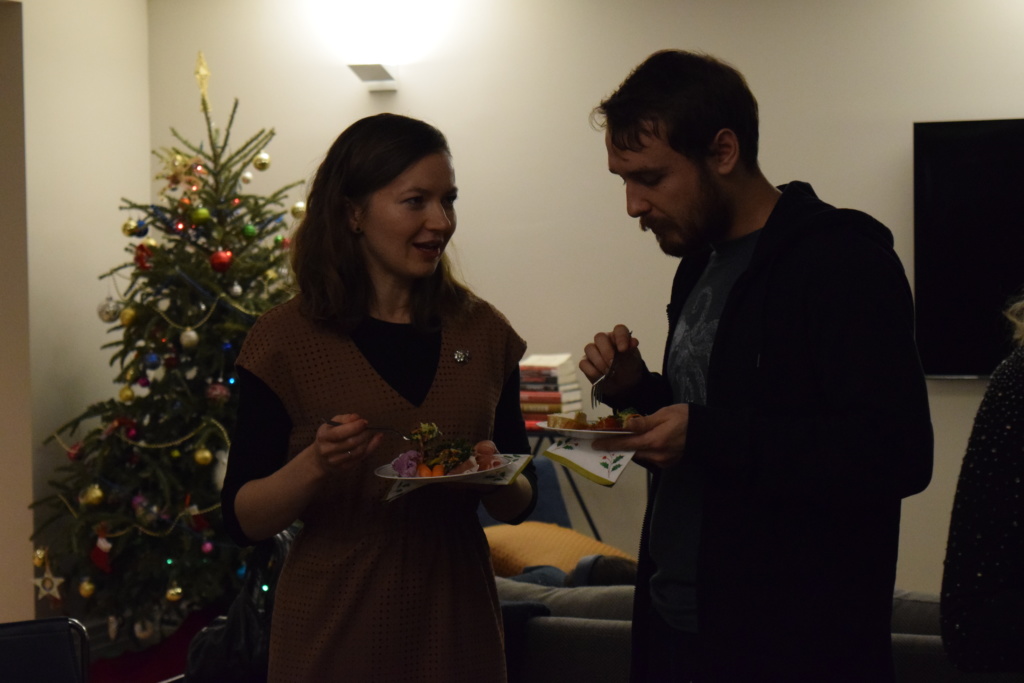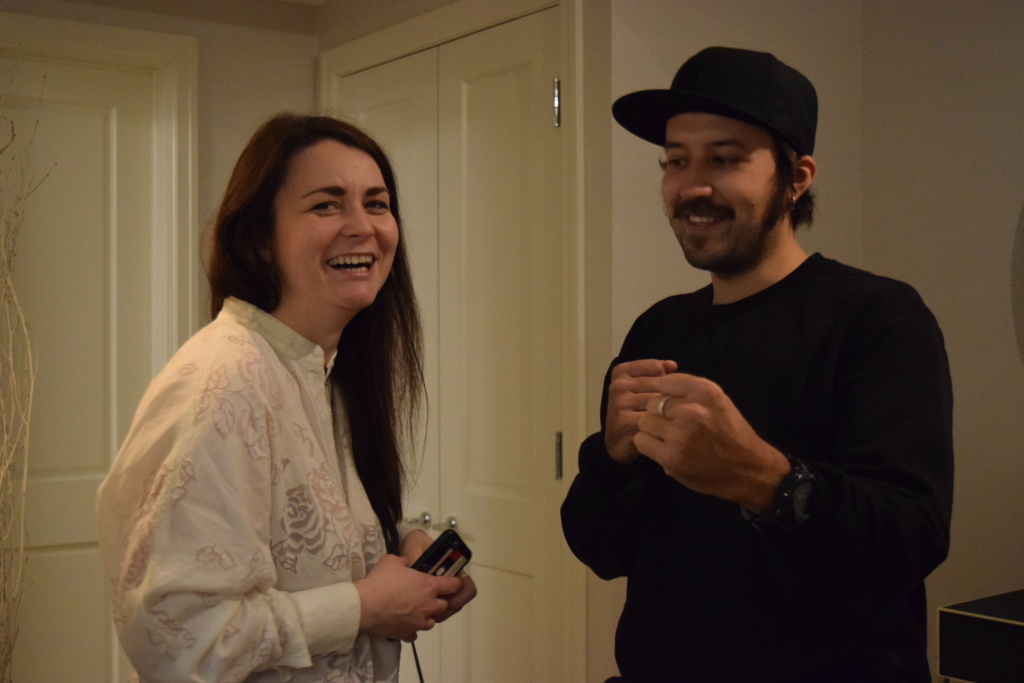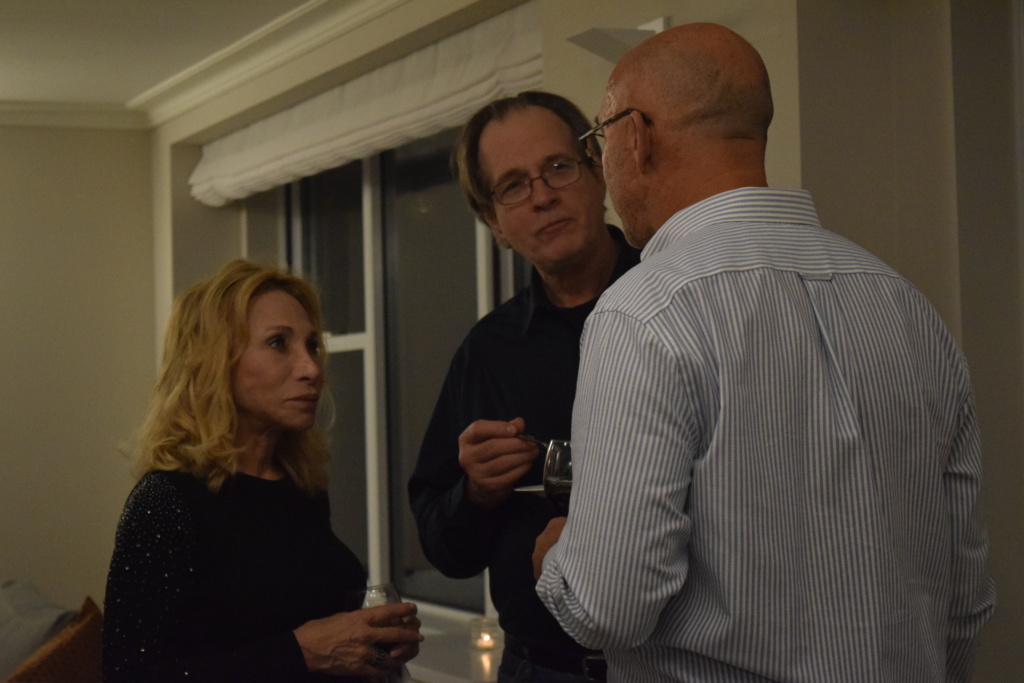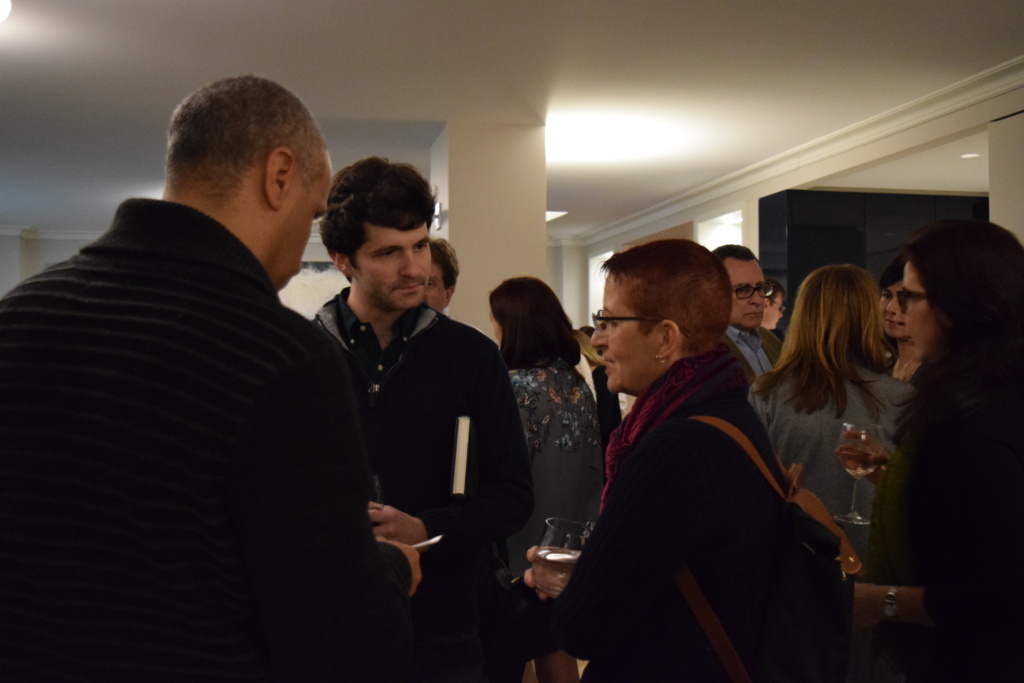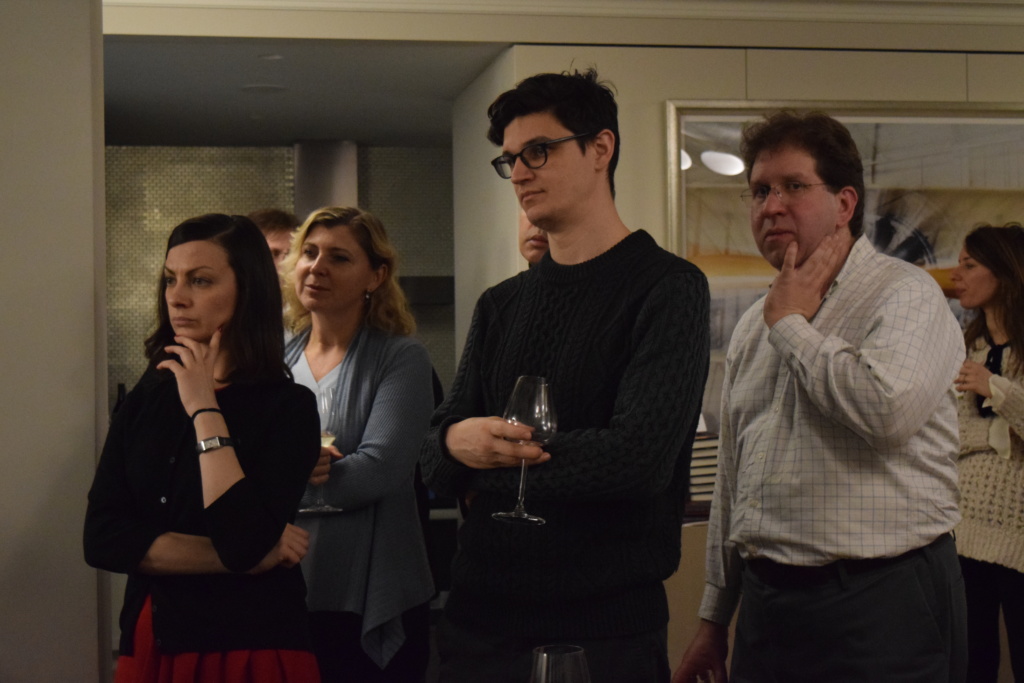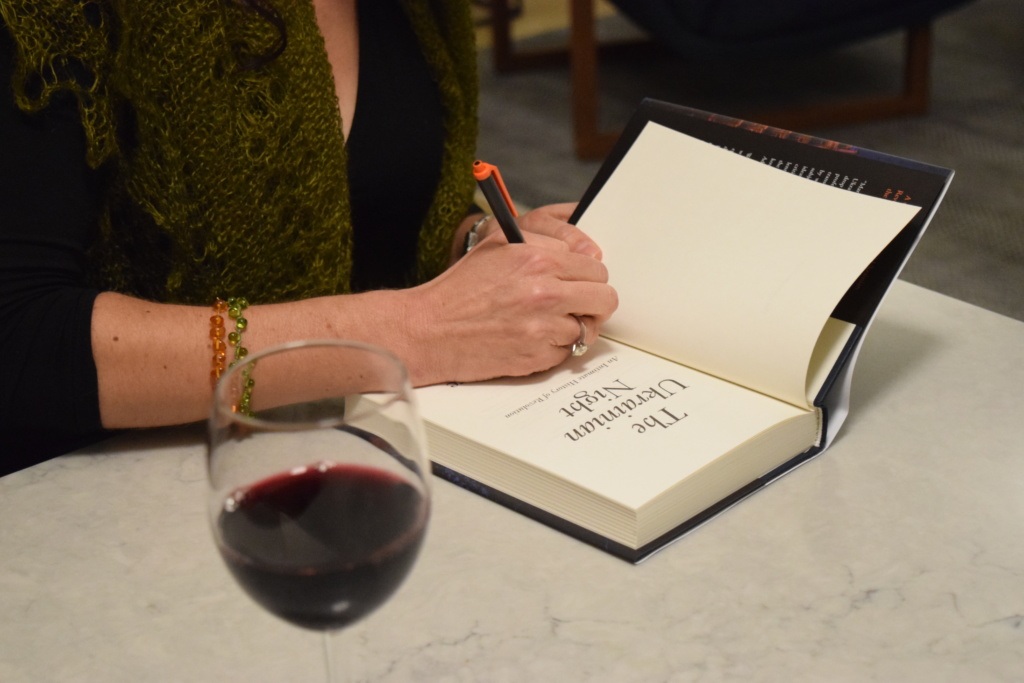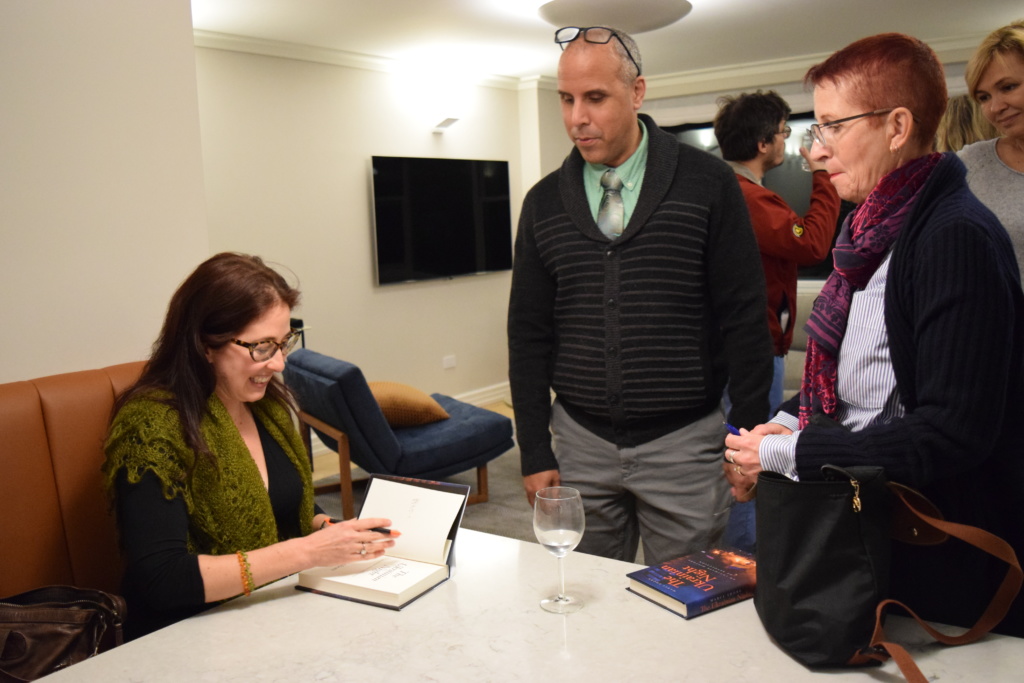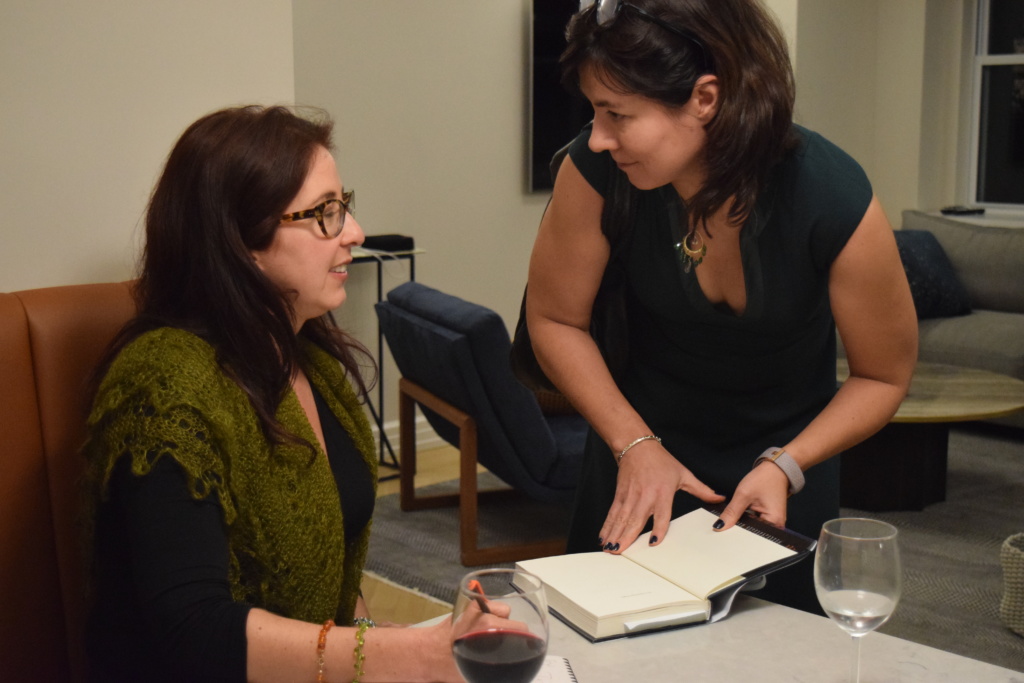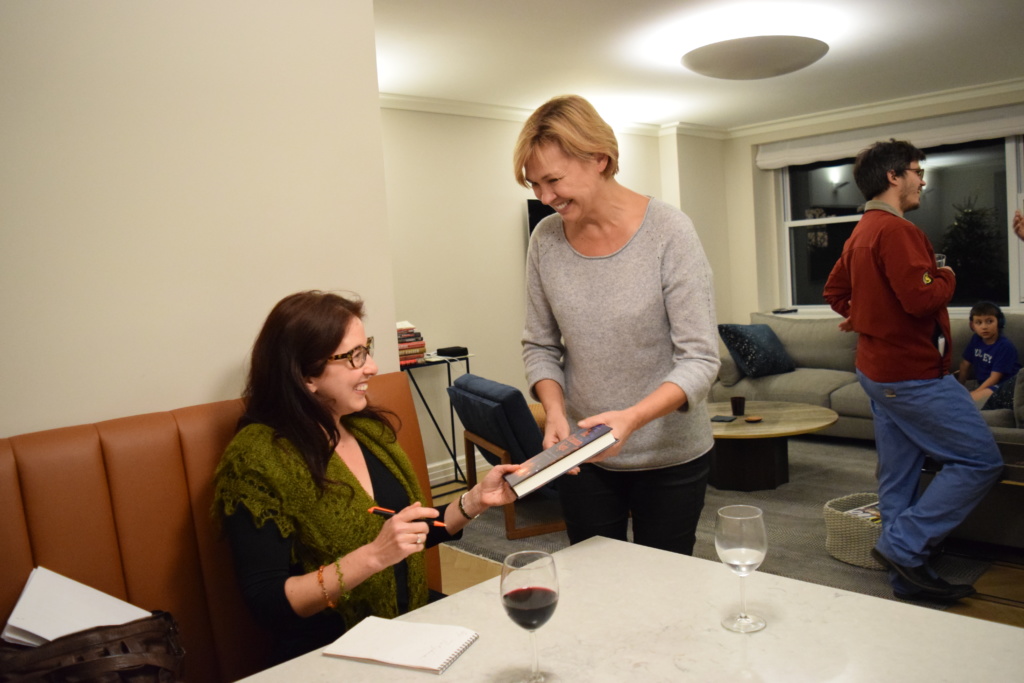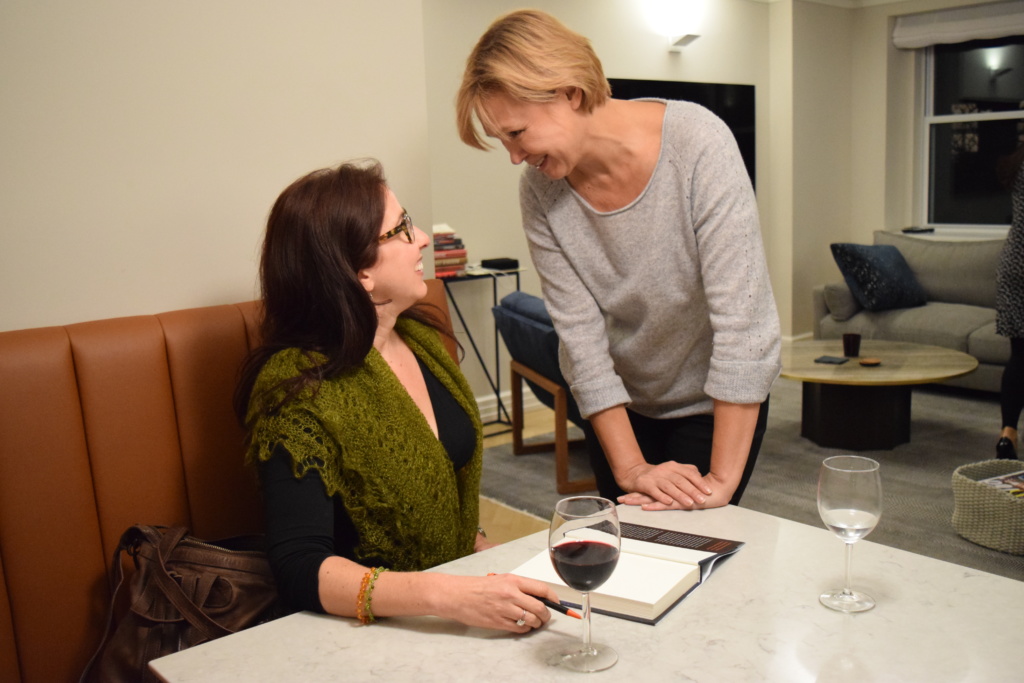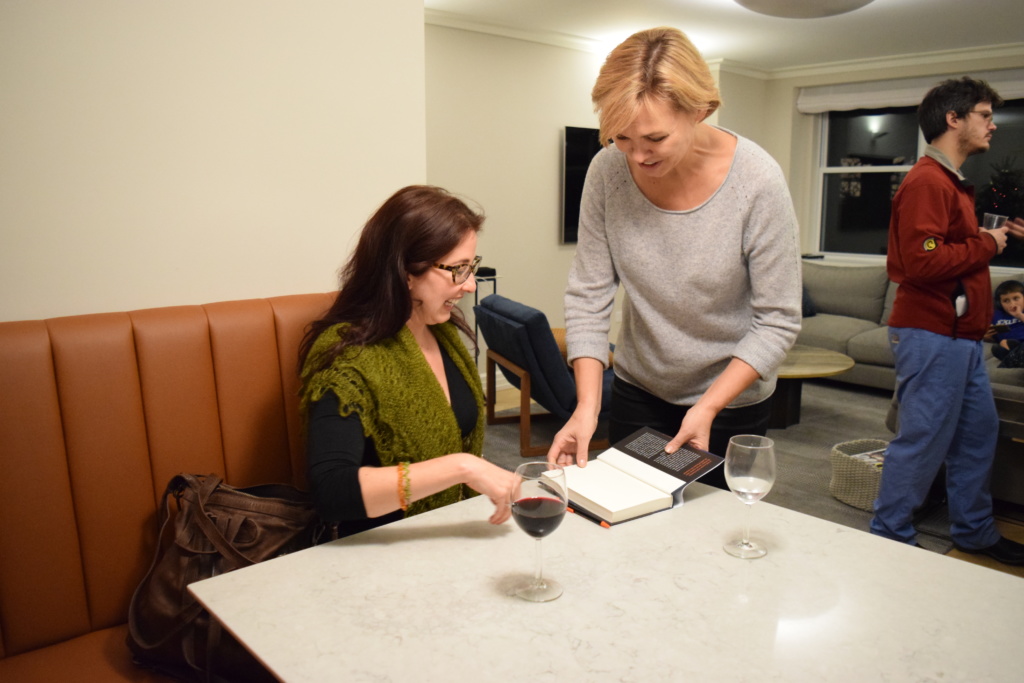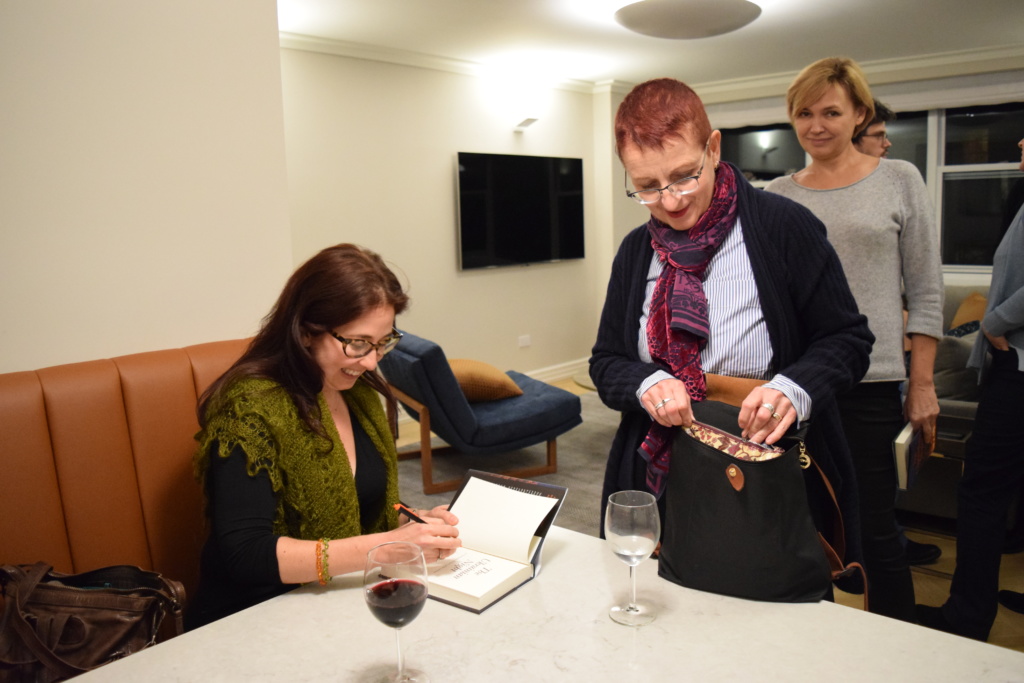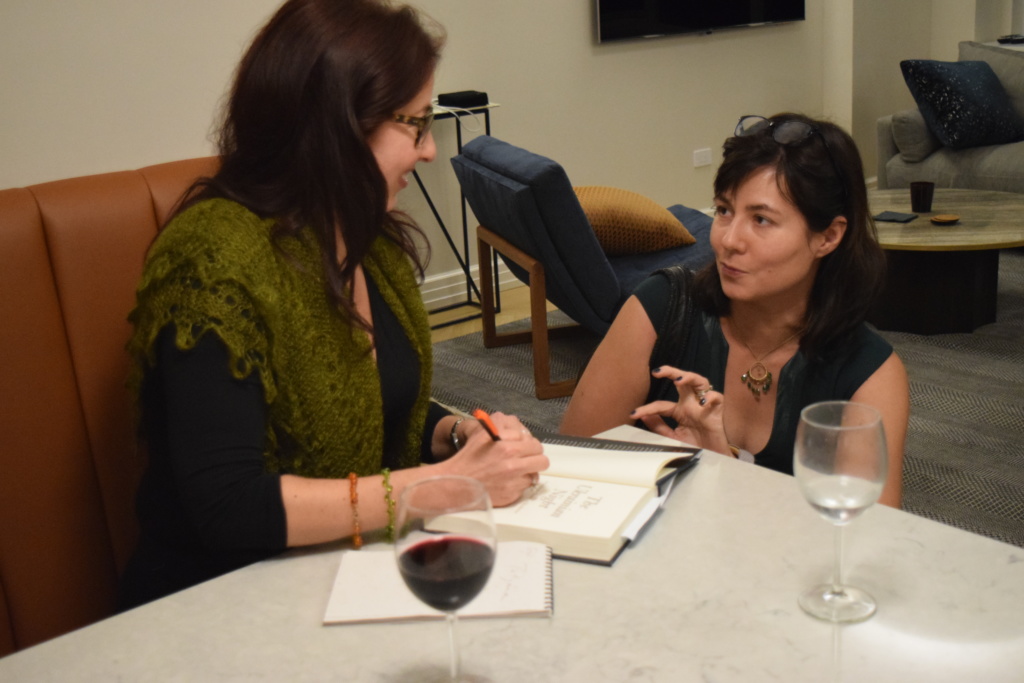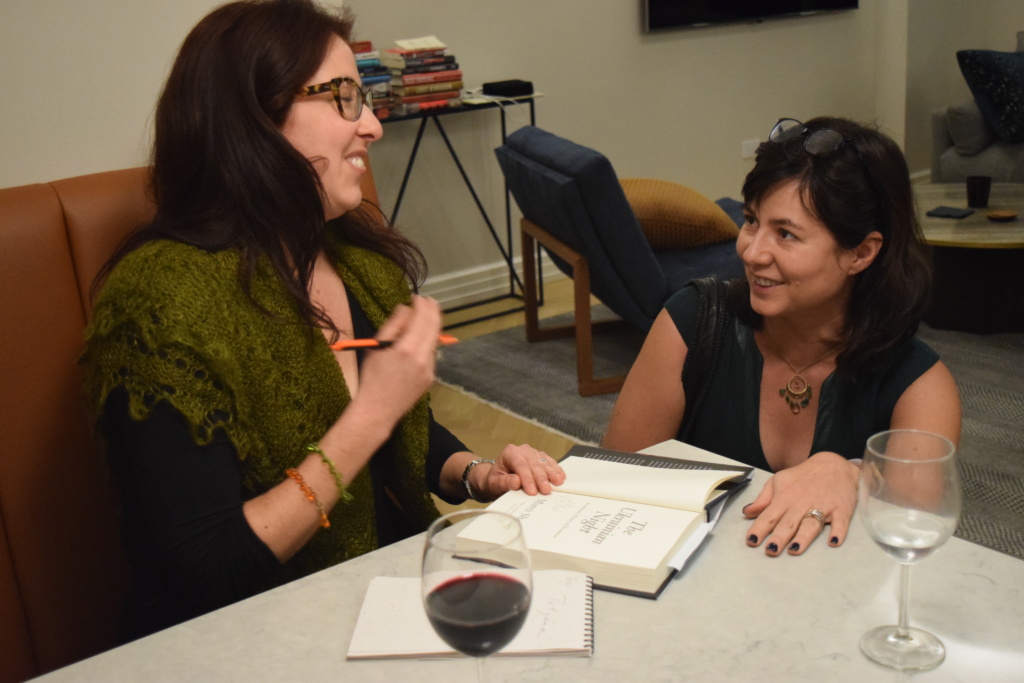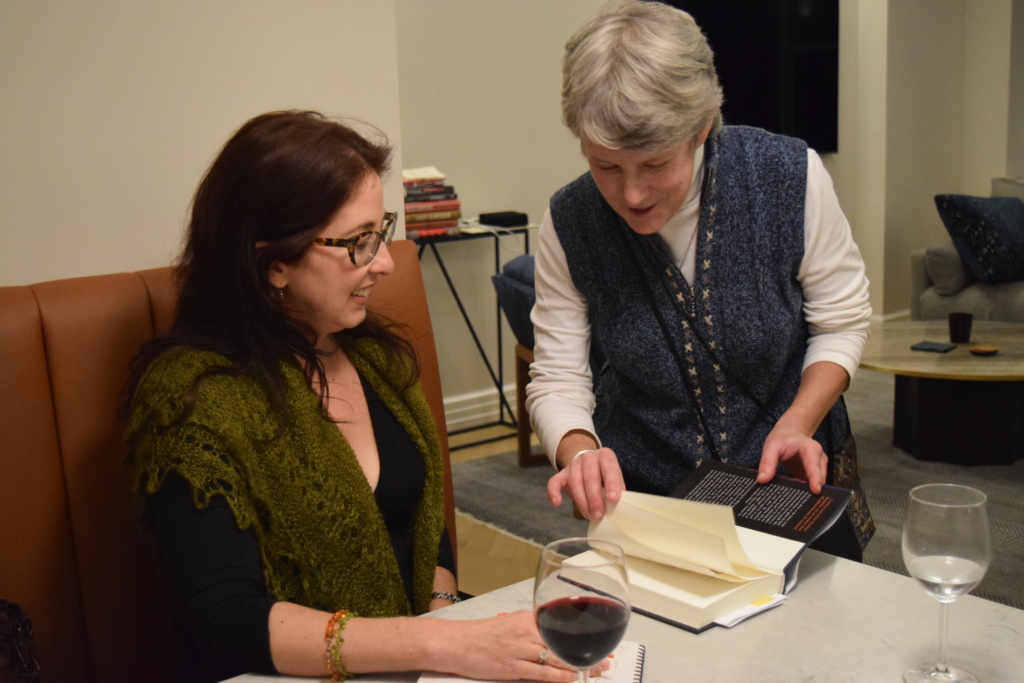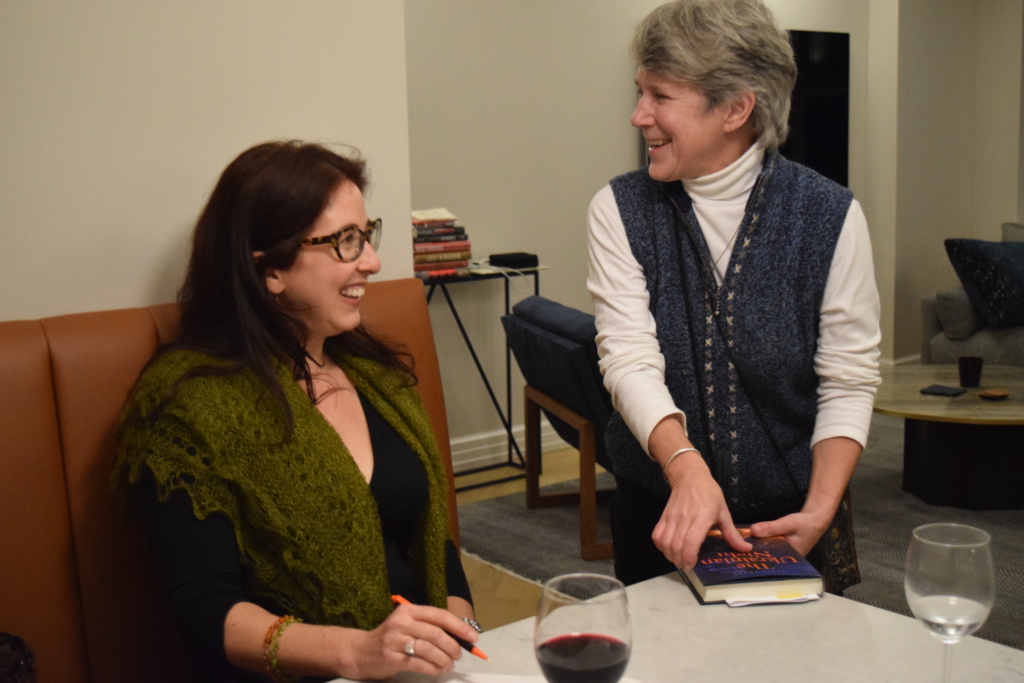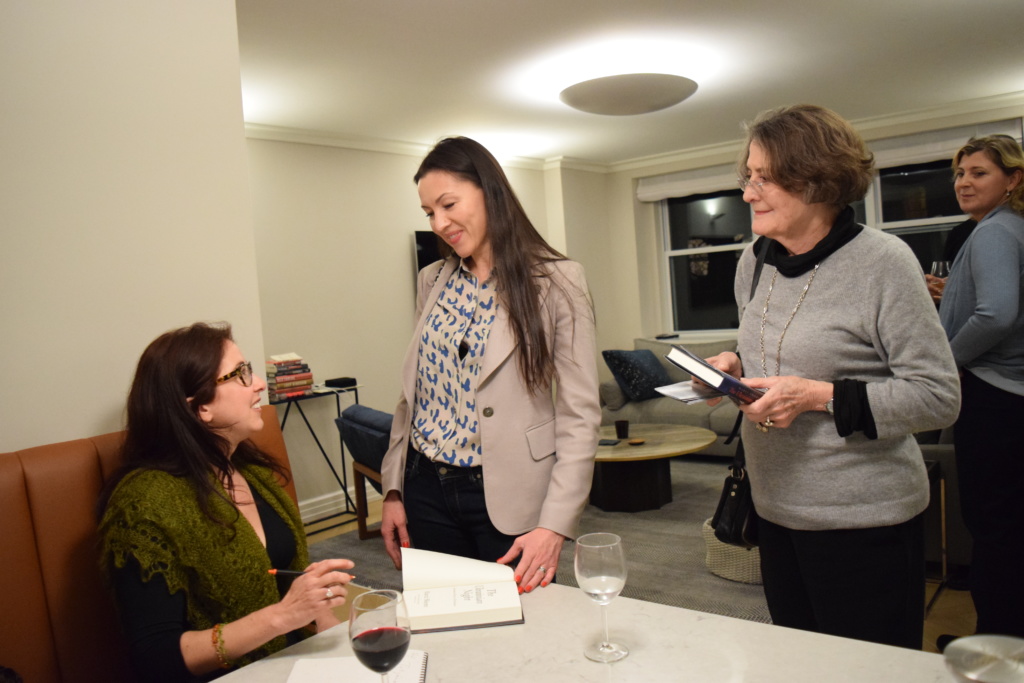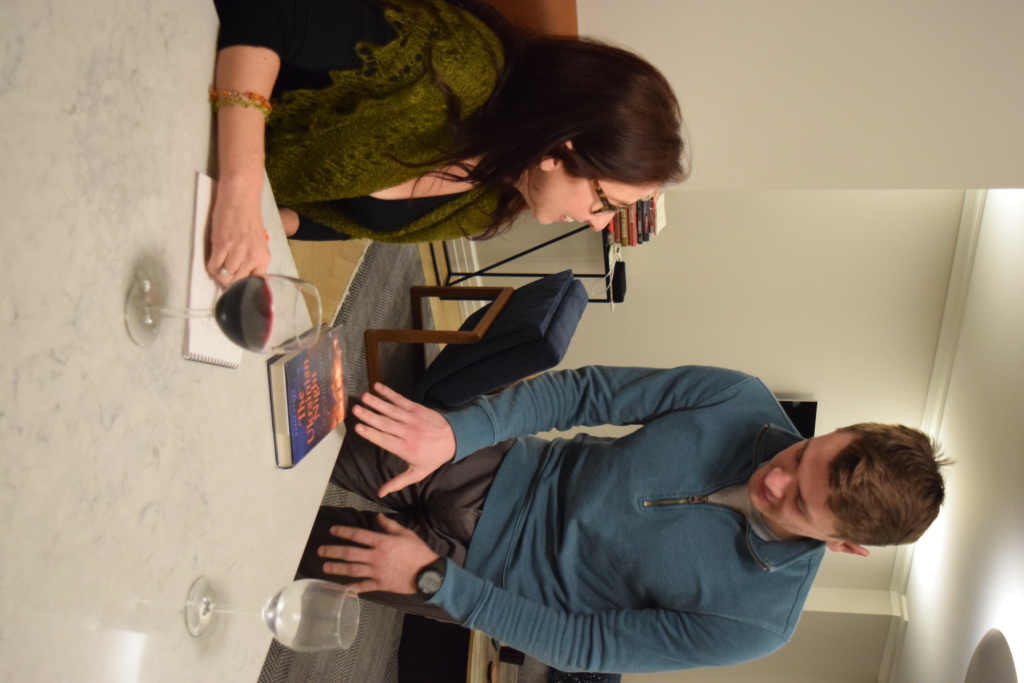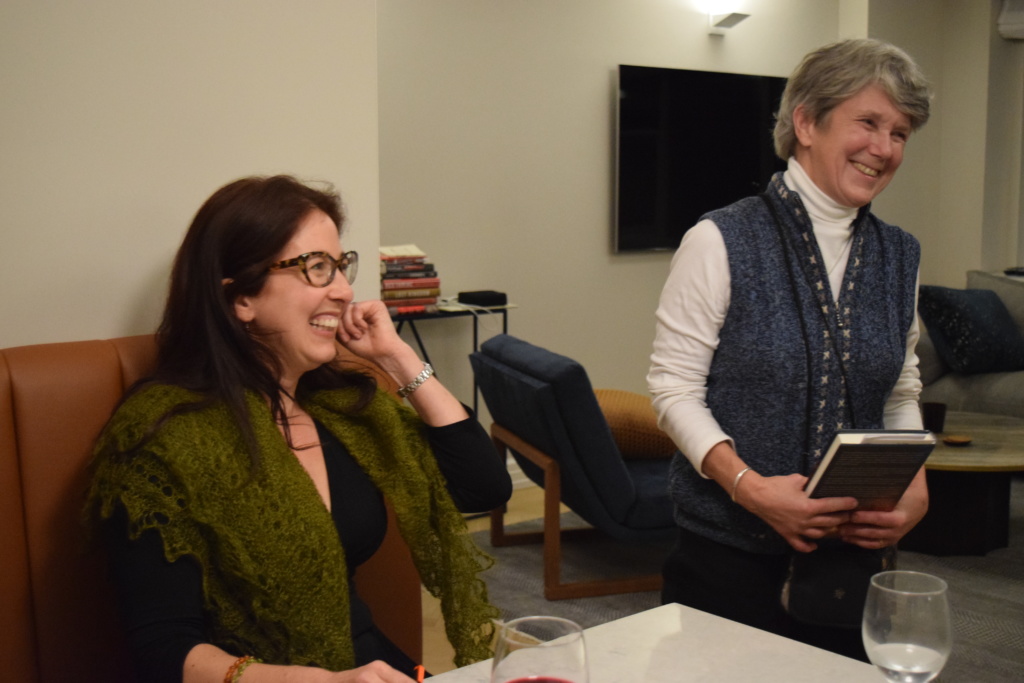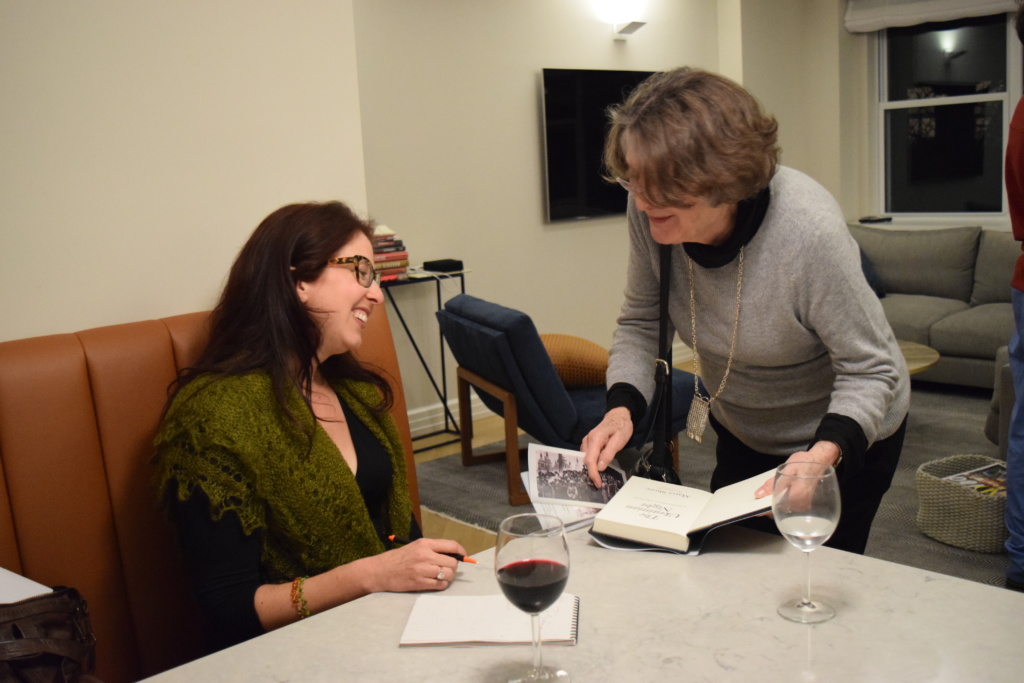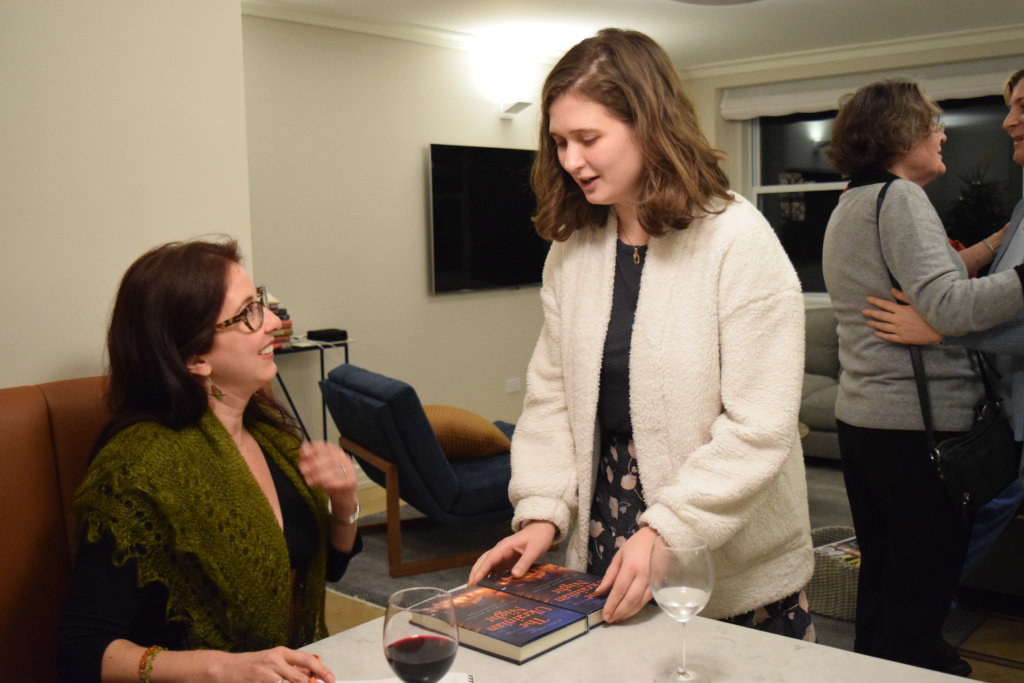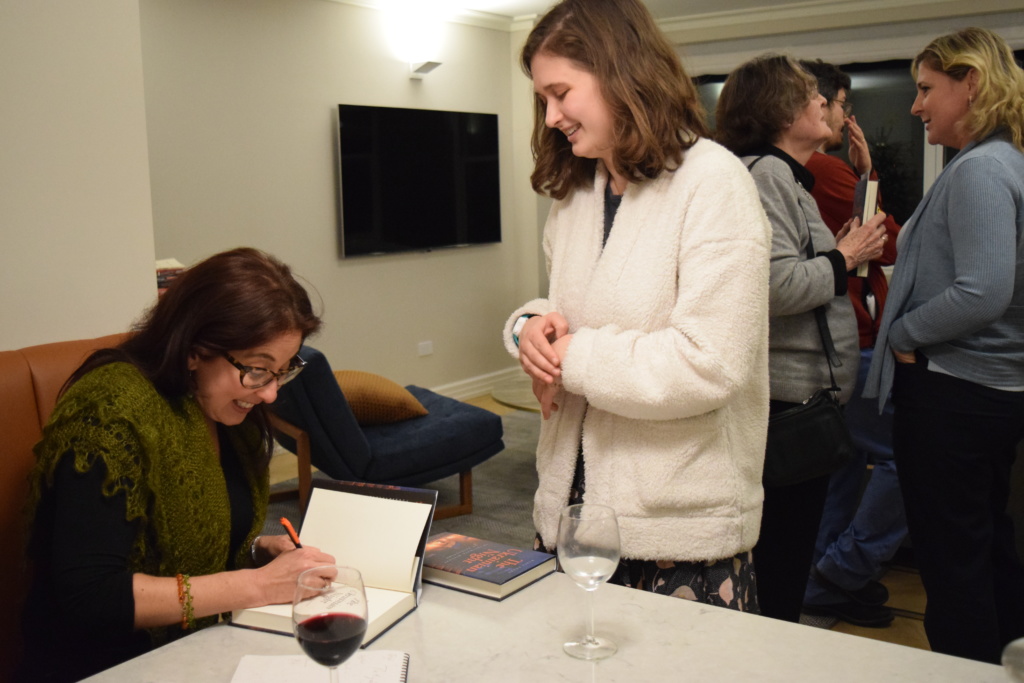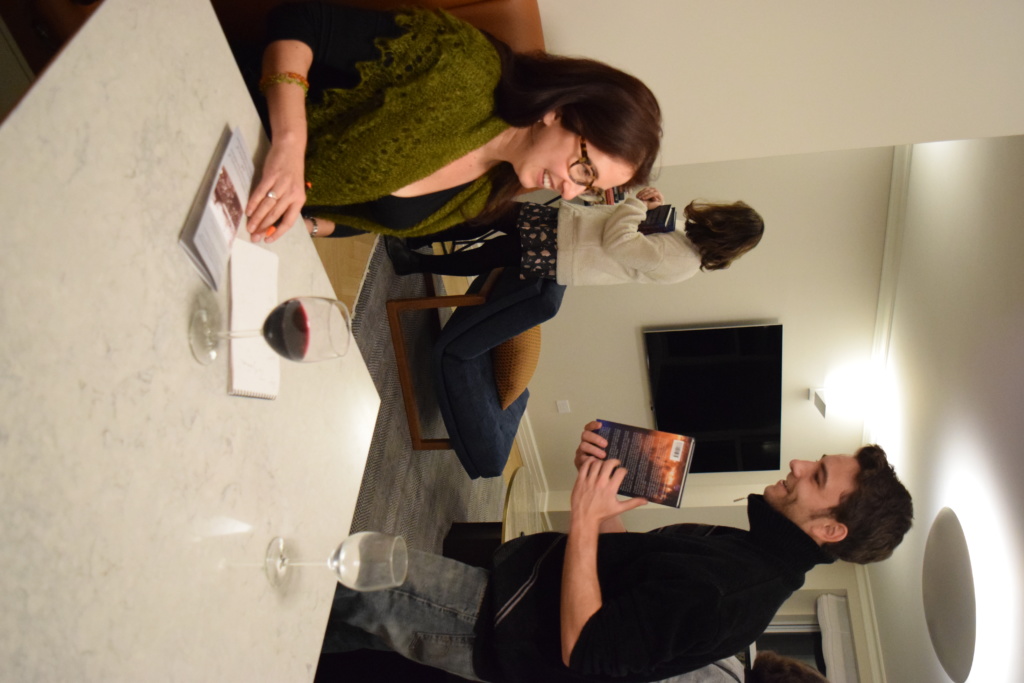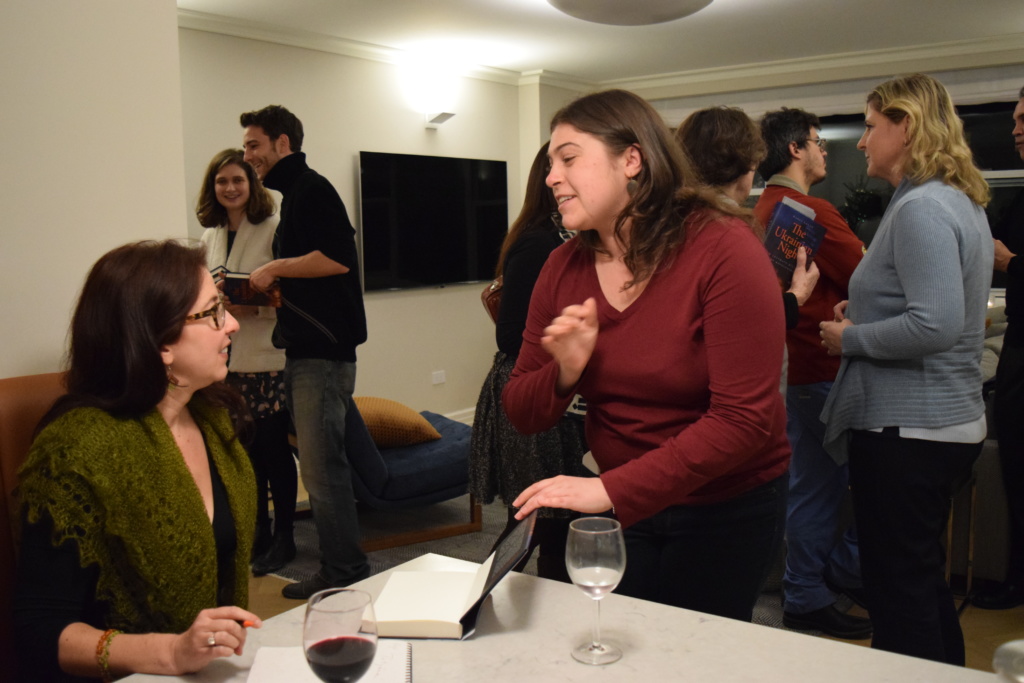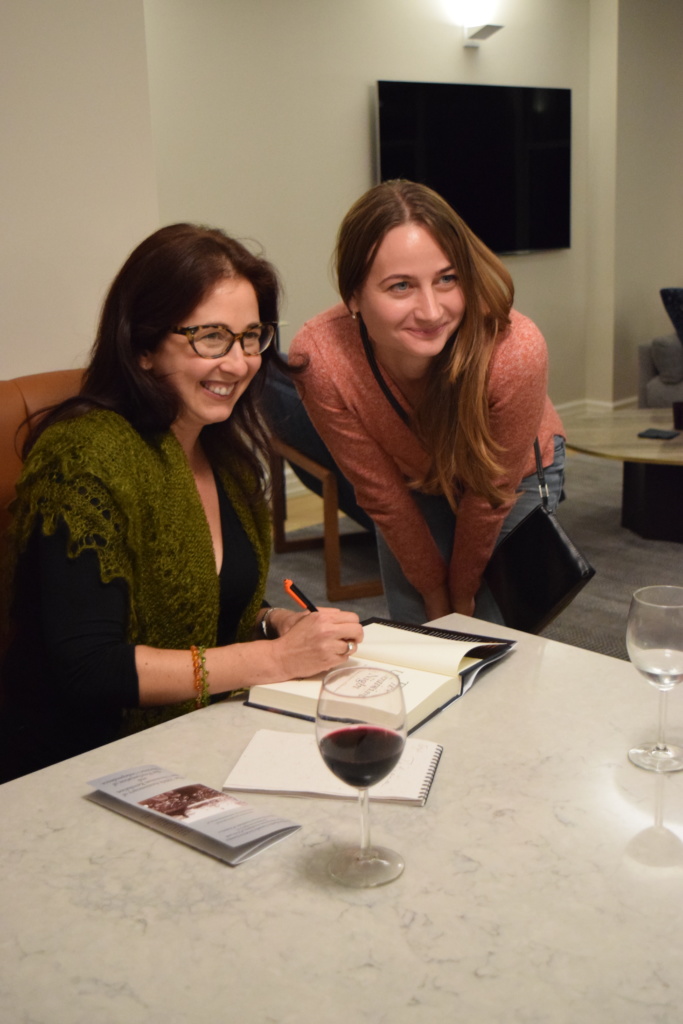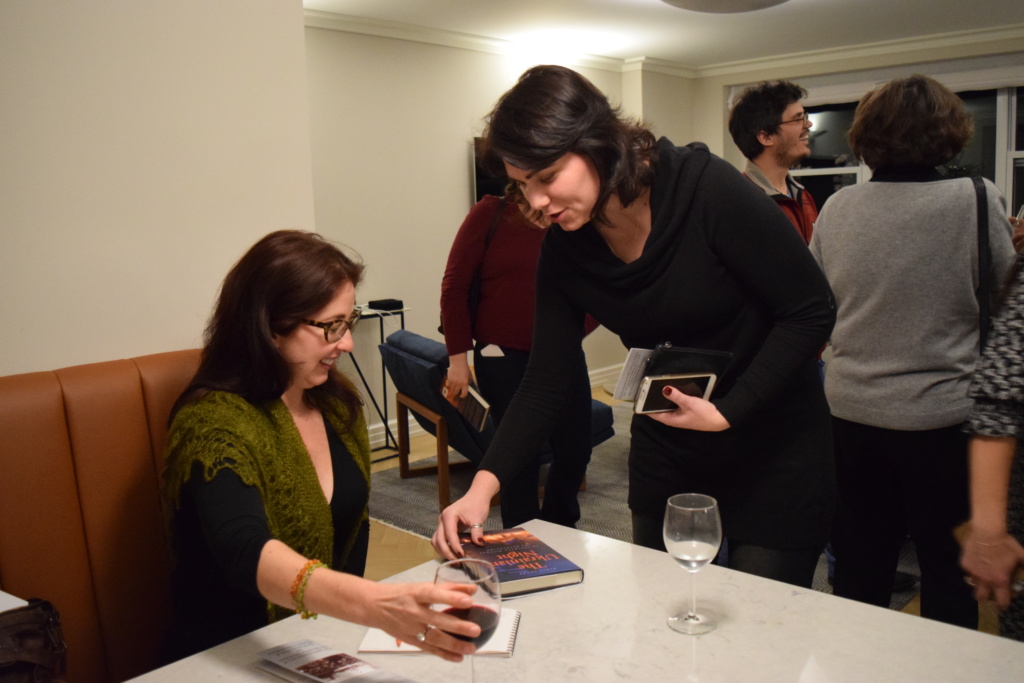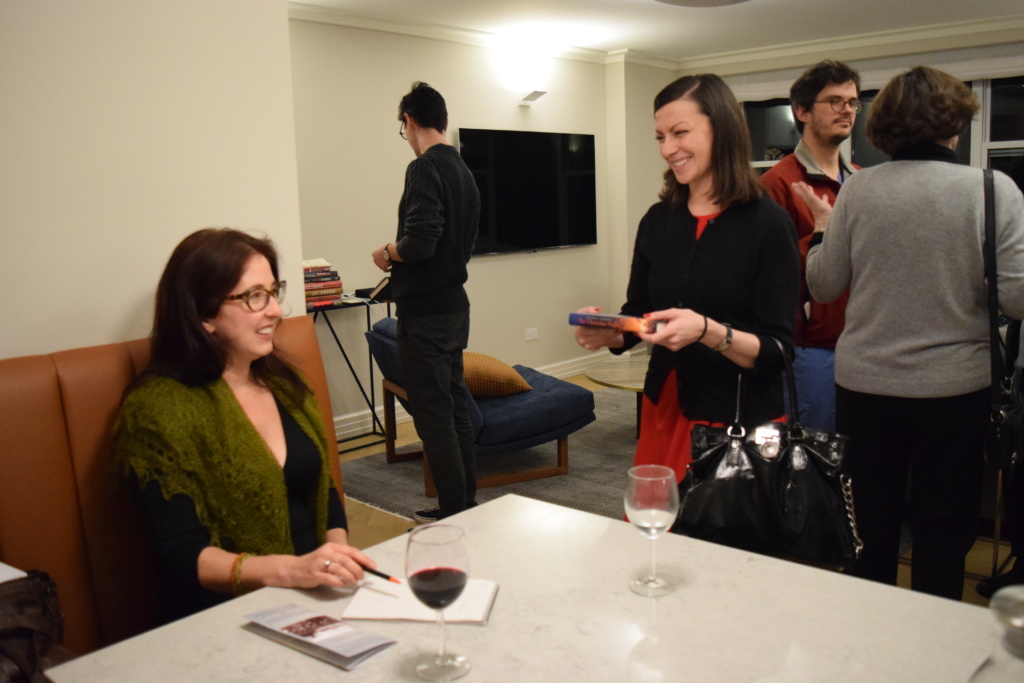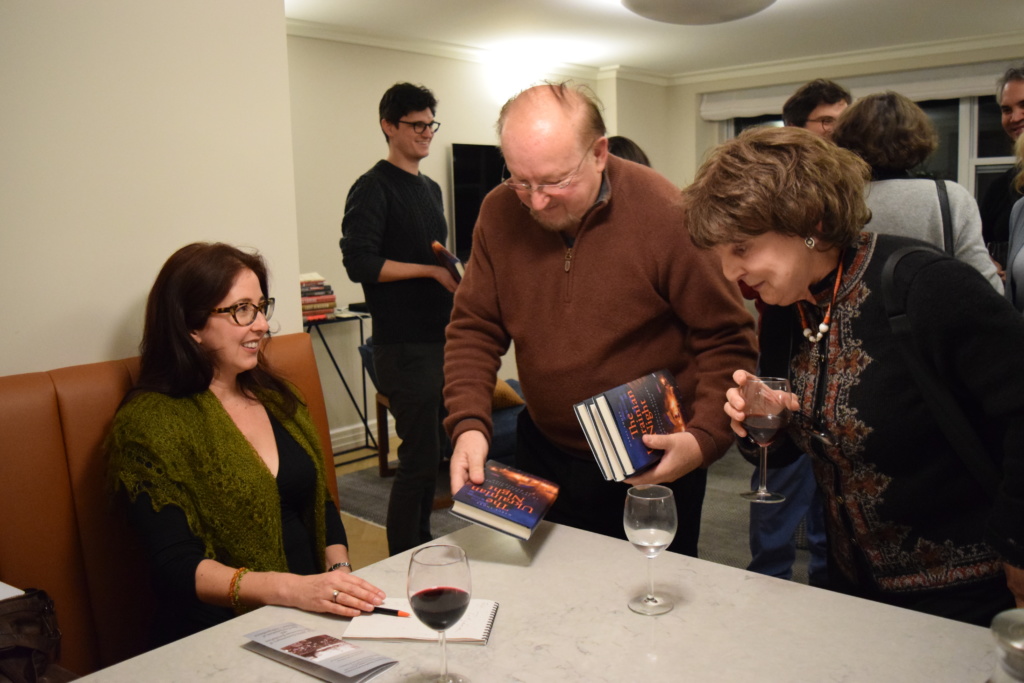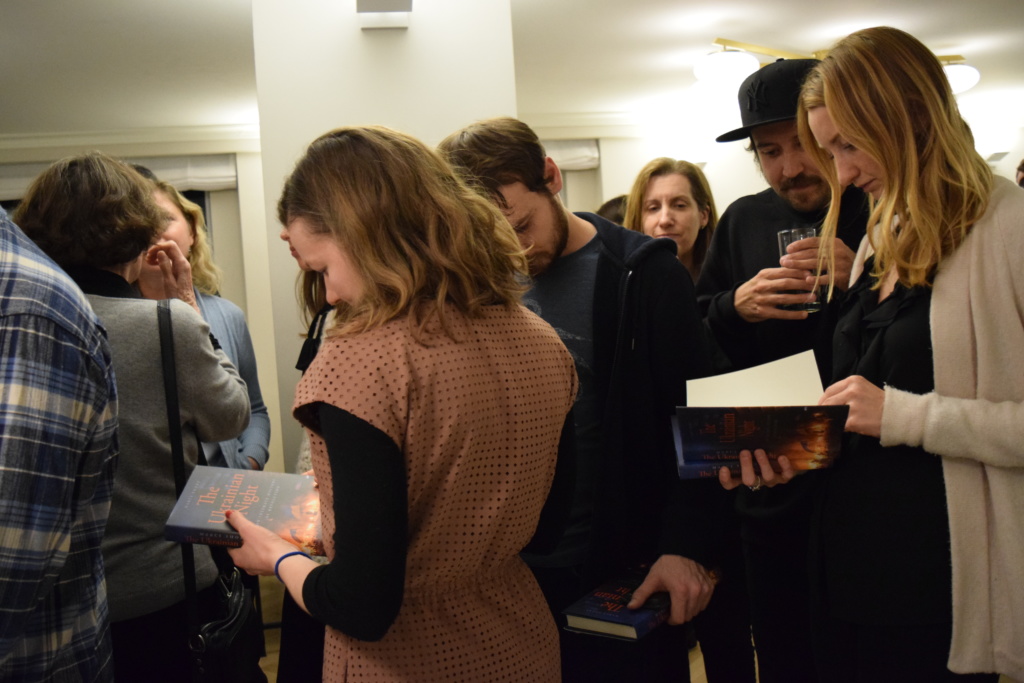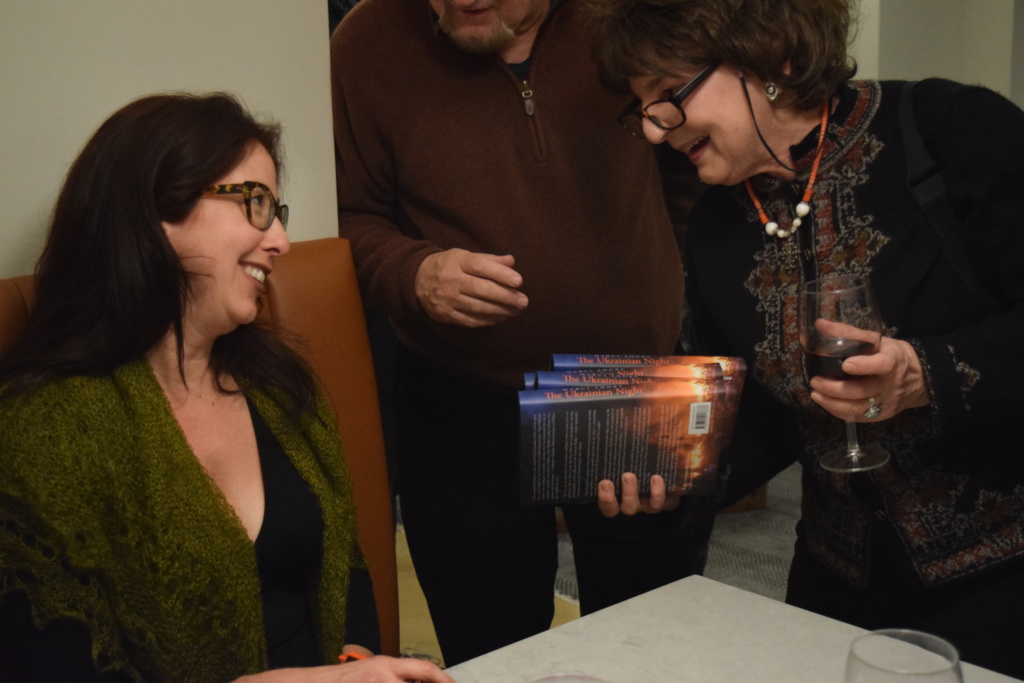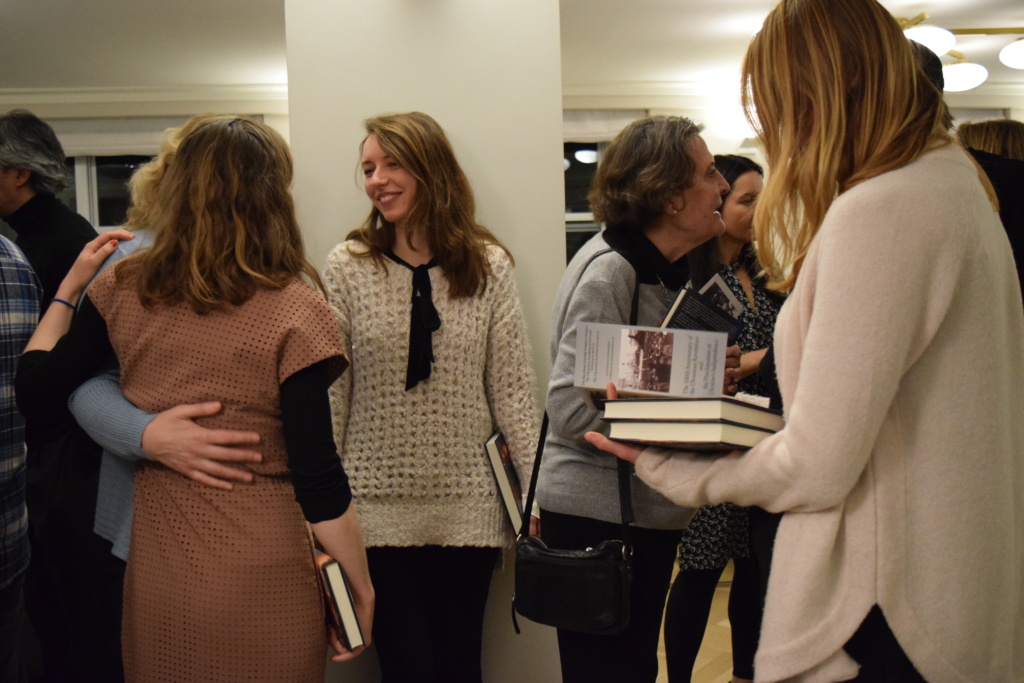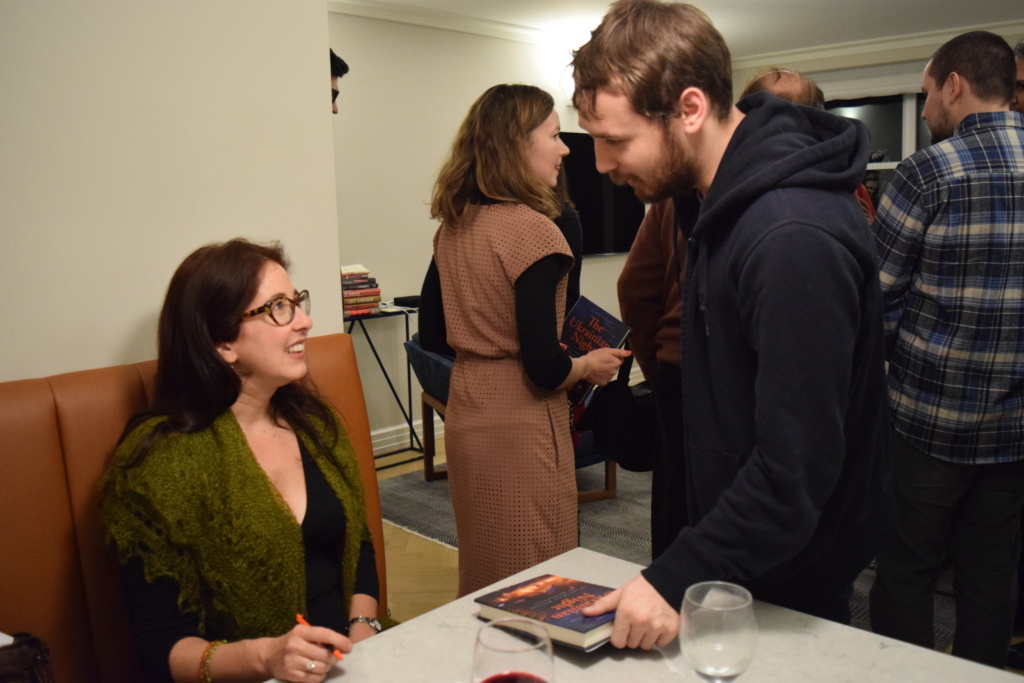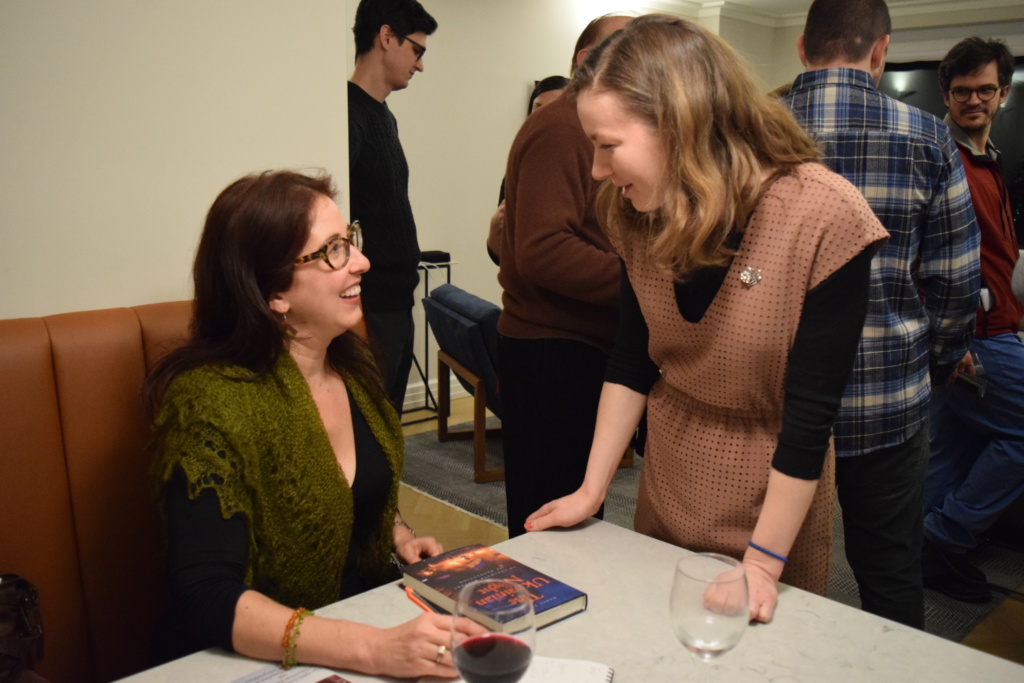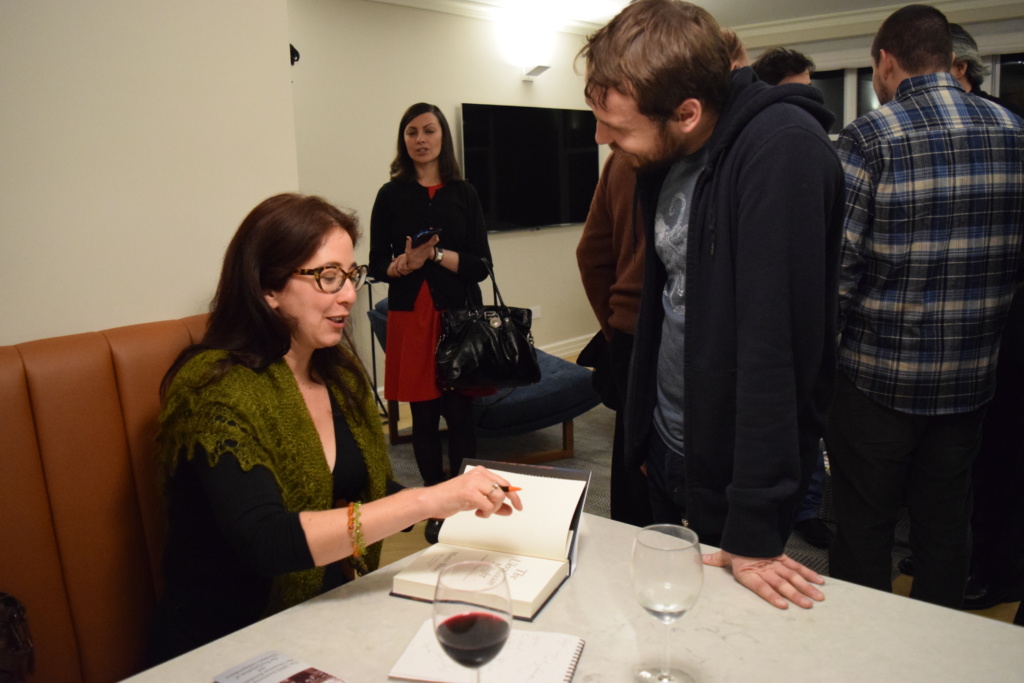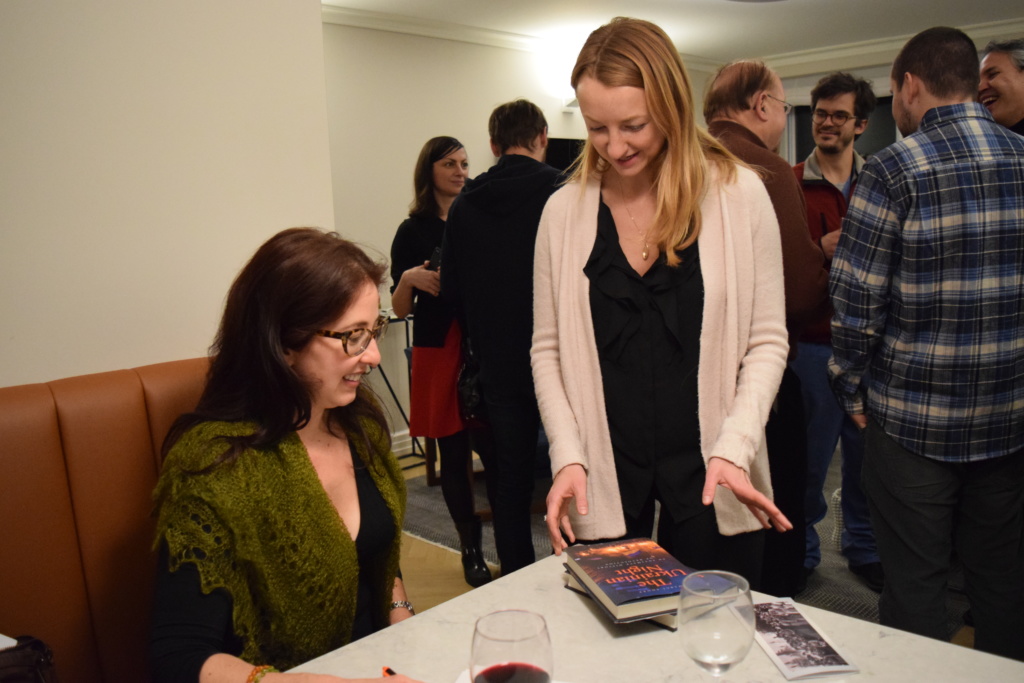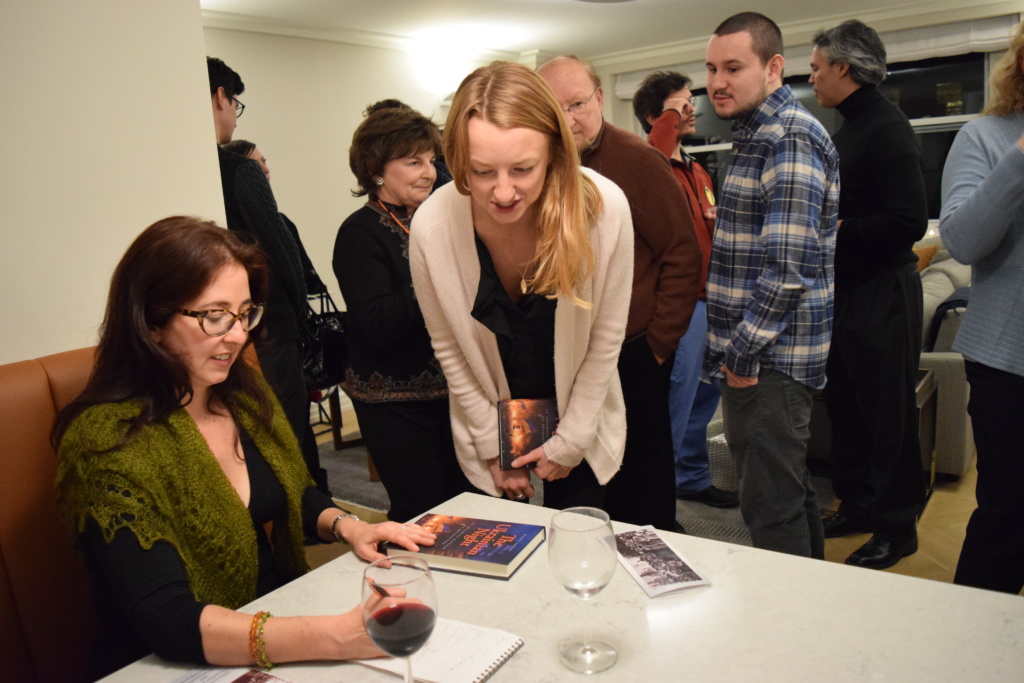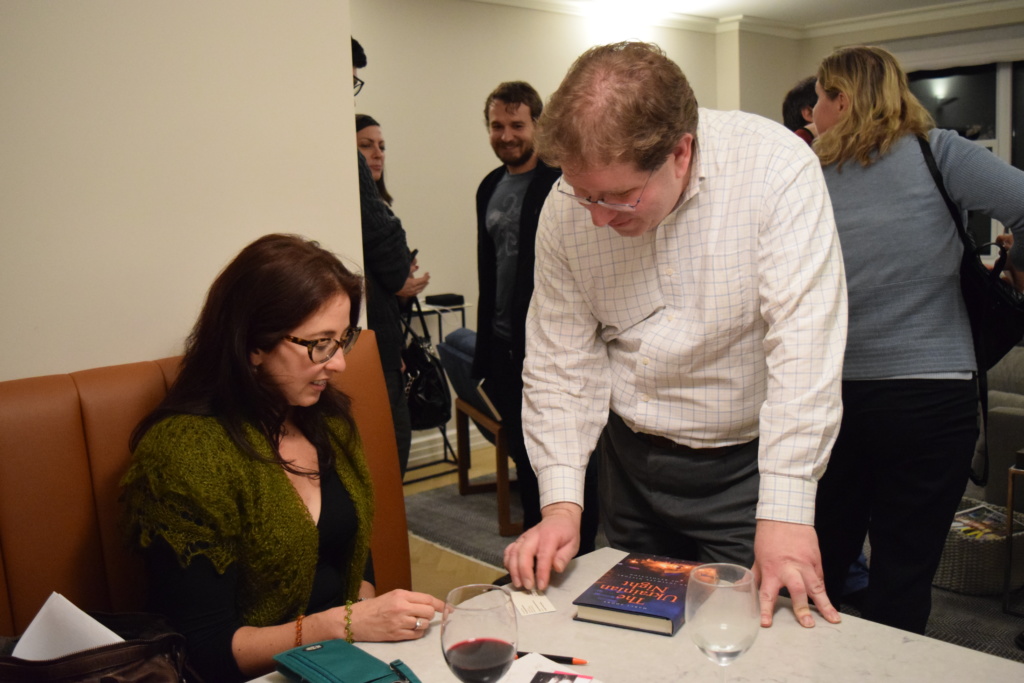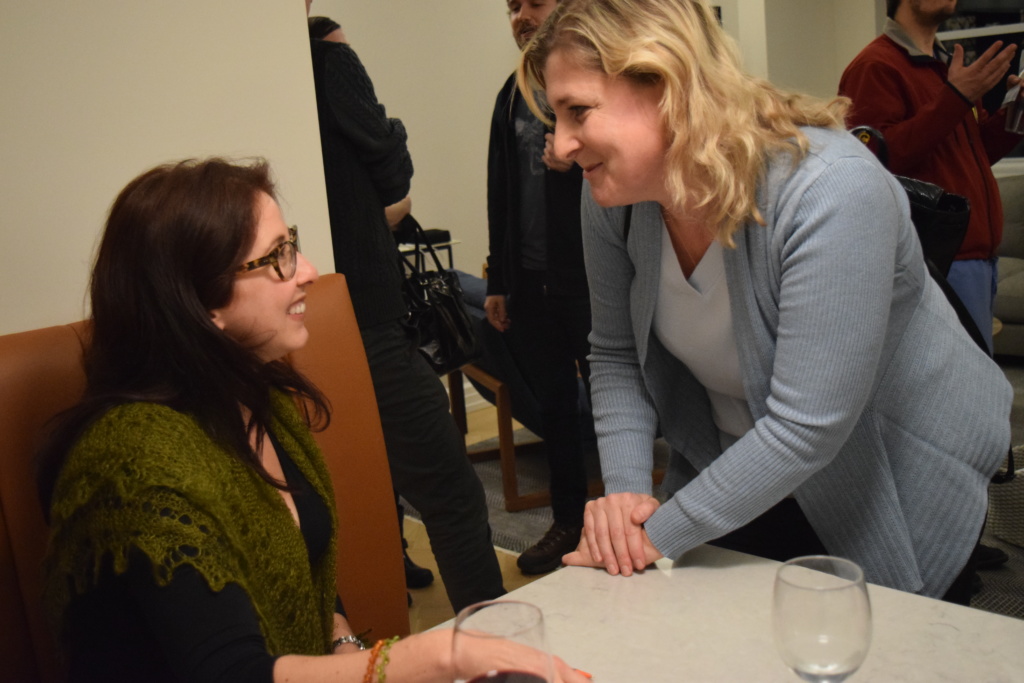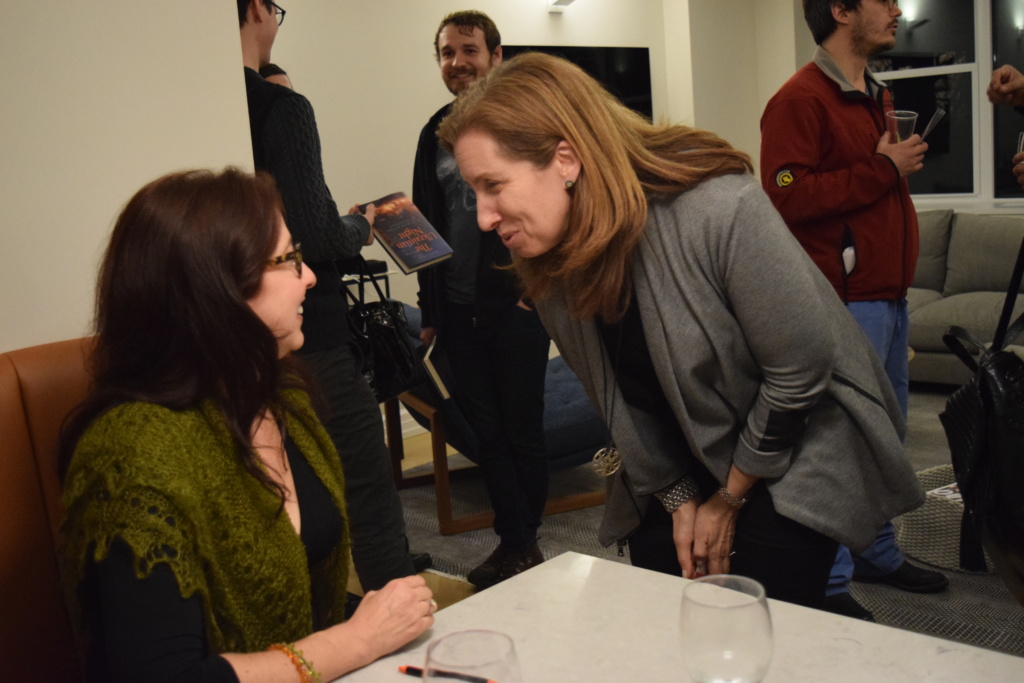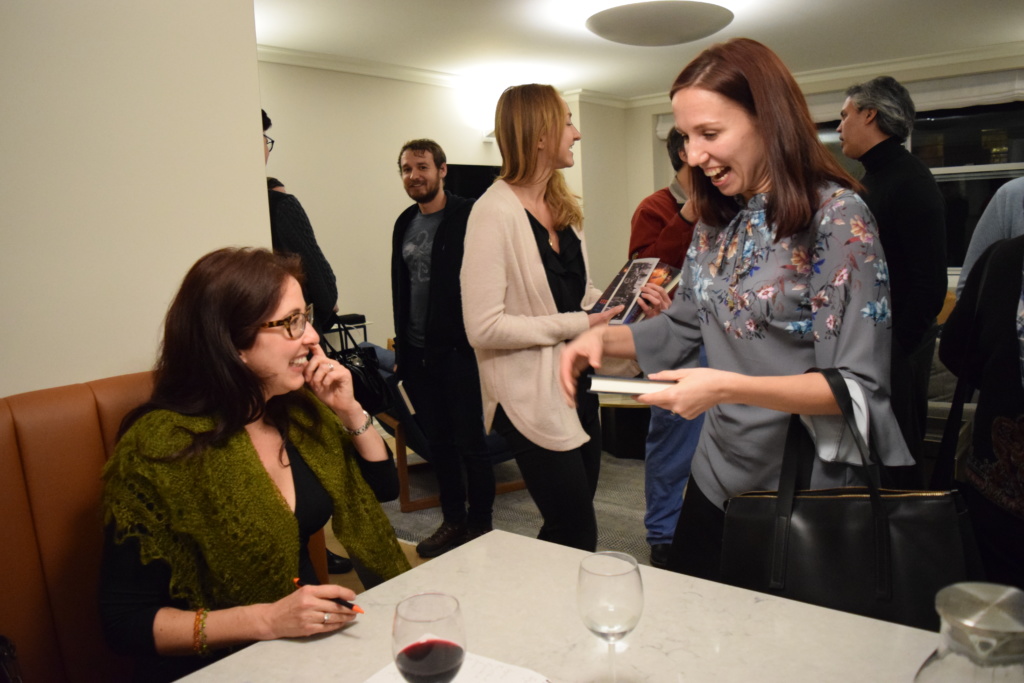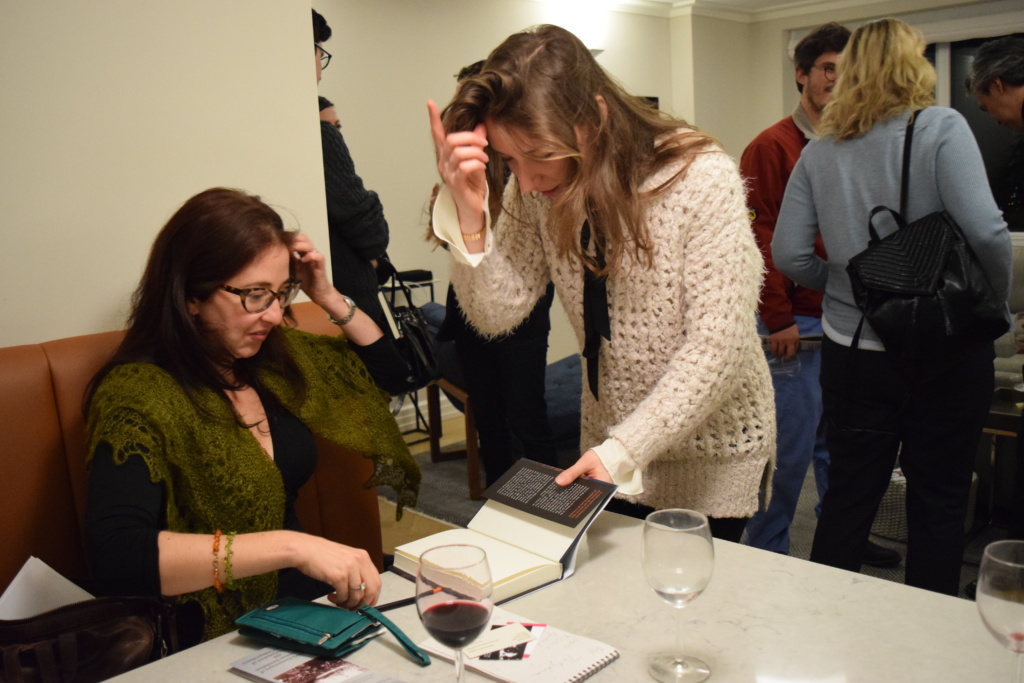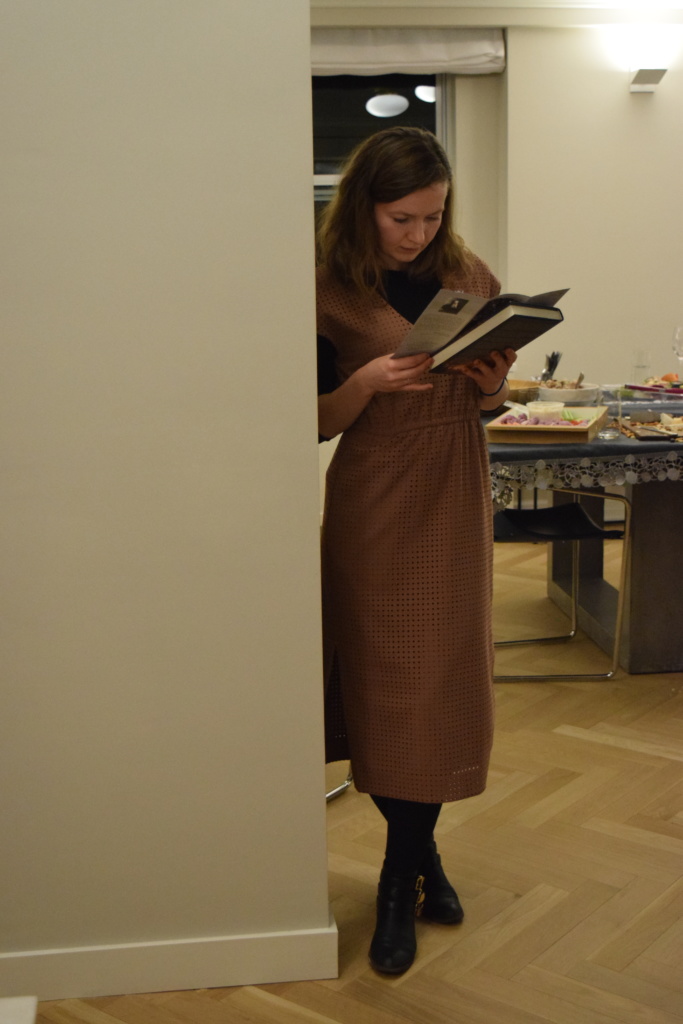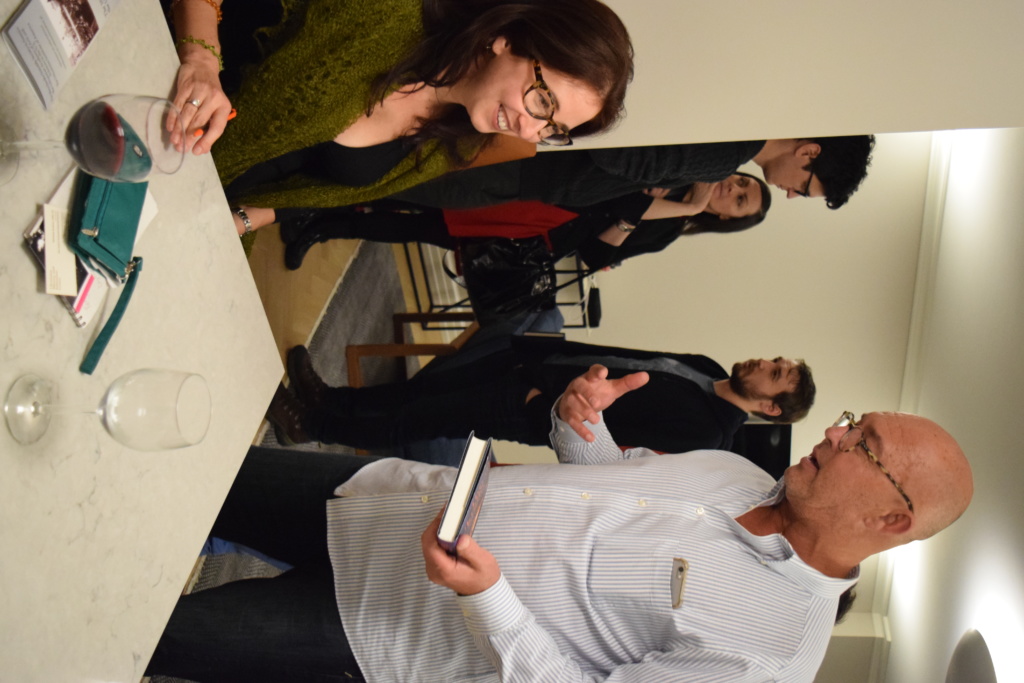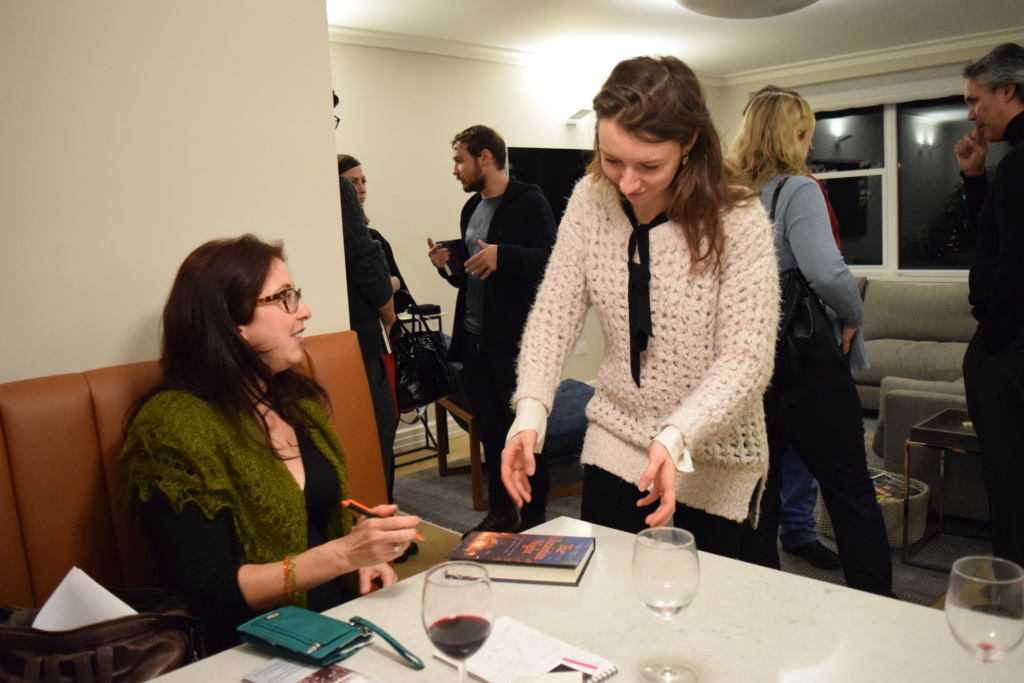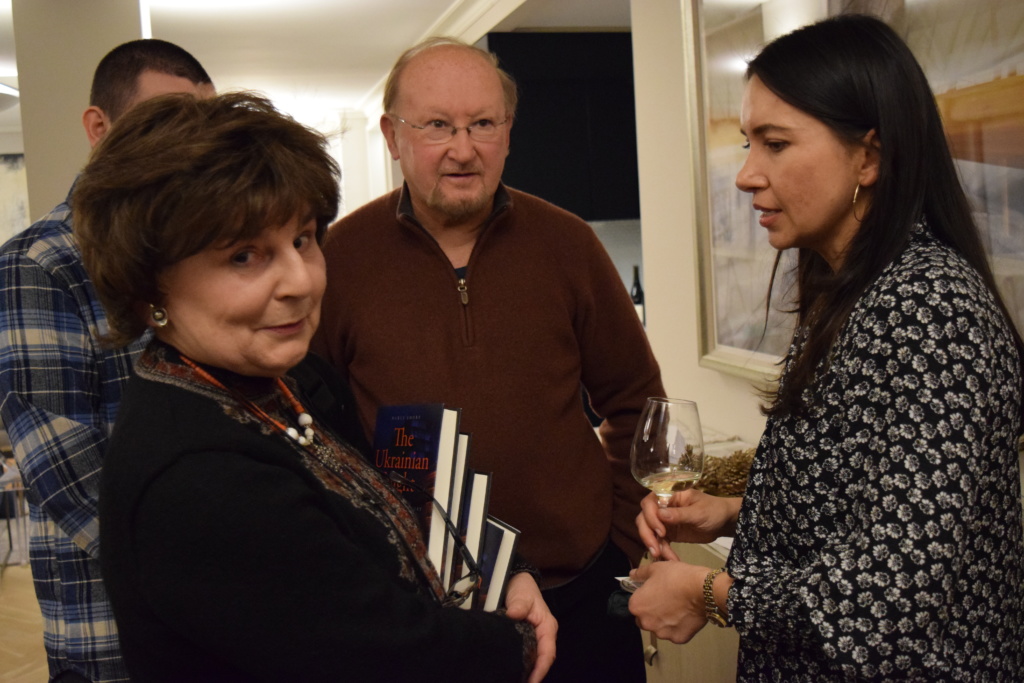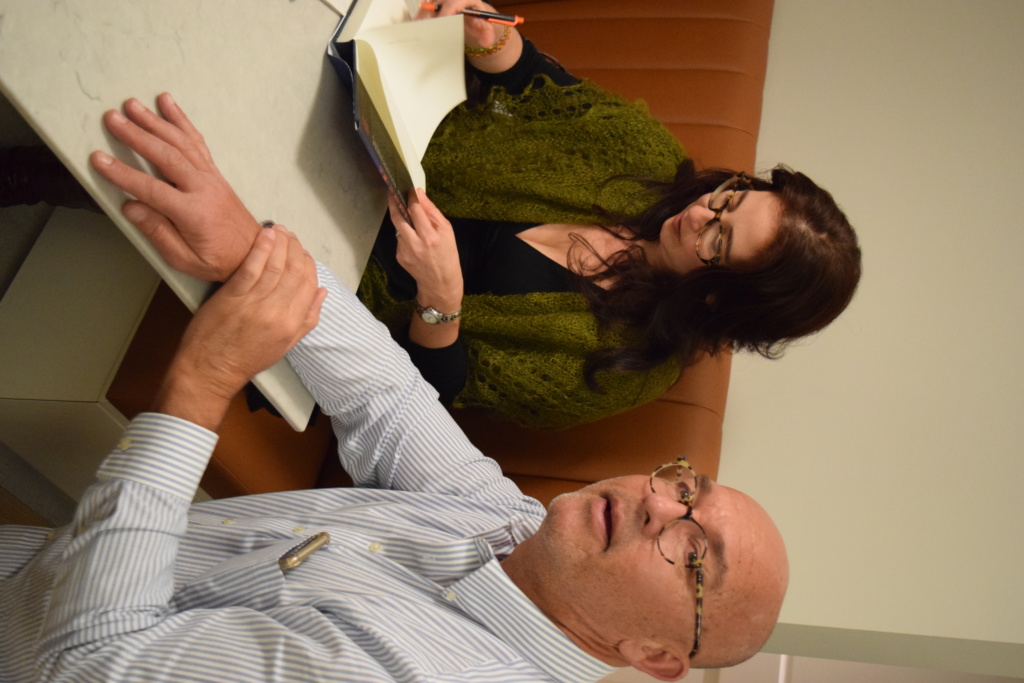By Maria Genkin, Razom volunteer
On Thursday, January 11, 2018, Razom organized a discussion about the new book ‘The Ukrainian Night: An Intimate History of Revolution’ written by Yale History Professor, Marci Shore.
Friends and patrons of Razom gathered in a private residence on the Upper East Side in Manhattan, where they mingled over drinks and delicious food before settling down for a discussion between Dr. Shore and Olena Lennon, Adjunct Professor of History at University of New Haven.
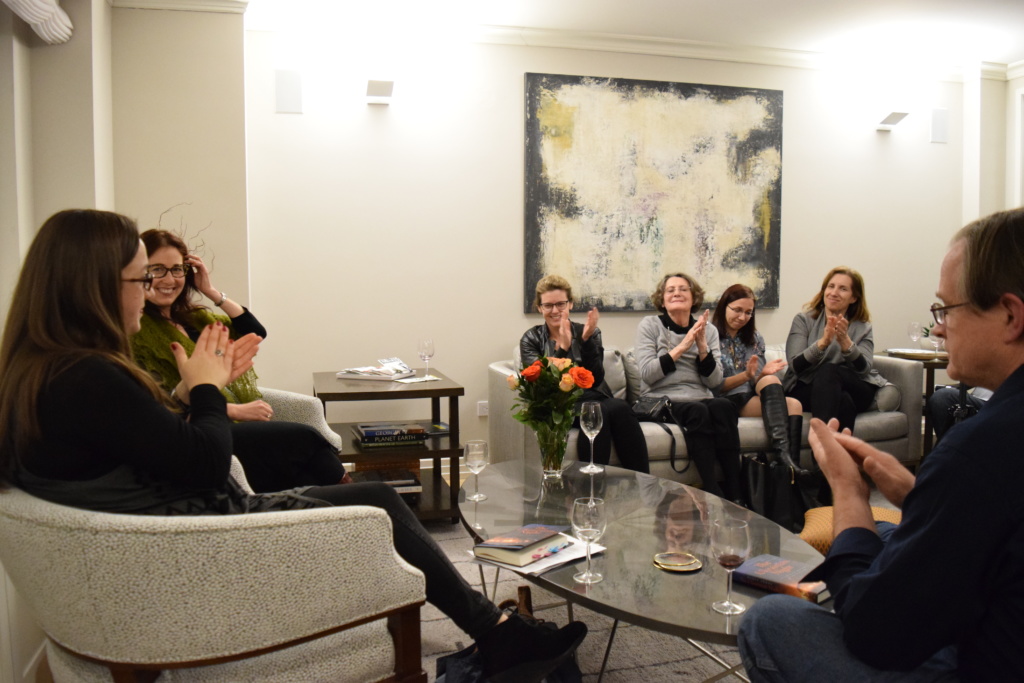
The book is a collection of profiles of individuals in Ukraine who were affected by Maidan or by the Russian invasion of the Donbass and Crimea regions of Ukraine. As the author said, ‘these are largely the stories of my friends, and the friends of my friends.’ They are not meant to be a comprehensive history, but rather, these specific stories serve to explore the question of ‘how someone very much like me can find themselves crushing bricks and building barricades–that is, how they can be pushed to a point where they’re taking risks and doing things they never could have imagined themselves doing just a few weeks earlier.’ The book puts a human face to the revolution that changed a country.
Professor Shore told us that she wrote the book primarily for non-Ukrainian audiences. She was working in Vienna in 2013-2014 and was struck by how differently the German-language press covered the events in contrast to the Polish-language press. At the same time, many of her colleagues were from Ukraine and were traveling between Austria and Ukraine. She saw that the coverage in all languages (German, Polish and English) was lacking depth and nuance that she was hearing from the Ukrainians. Shore set out to change that.
If you are not Ukrainian, you should read this book to understand how people can make a split second decision to burn tires, mix Molotov cocktails and put themselves in the line of fire. The unique existential moment of revolution is what Marci Shore is after, and she manages to capture it and translate it for those of us who have not experienced it ourselves.
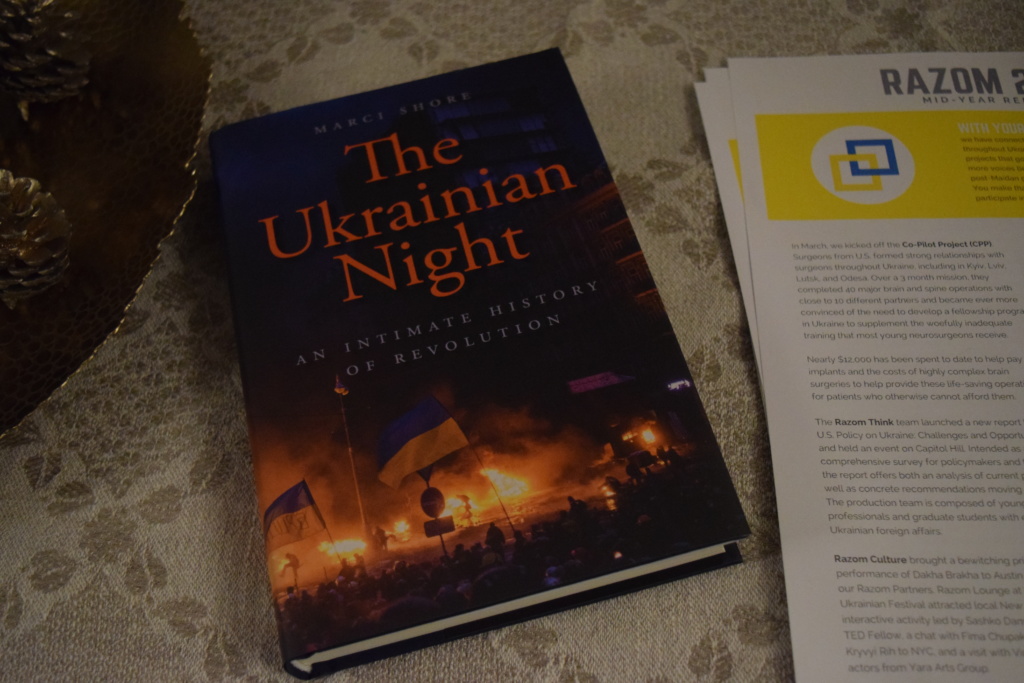
While the book is written from the perspective of explaining Maidan to a non-Ukrainian audience, there are still great reasons to read the book if you are a Ukrainian.
The book manages to capture the emotional side of the revolution. There are moments when your heart is going to sink again and you are going to remember how it felt back then. This is not something that is easy to recreate as the experience of Maidan was very raw emotionally, and conveying those impulses of emotions is something that Professor Shore’s book does masterfully.
After discussing the book with Olena, Professor Shore took questions from the audience. Some really interesting topics were brought up, such as the reaction of the Polish intellectual milieu to the Maidan, which is something Professor Shore was able to tell us based on her first hand observations and impressions.
Professor Shore also told us of a very moving episode that did not make it into the book. She was asked to participate via Skype in a graduate seminar in the Ukrainian Catholic University on Tony Judt’s writing, and once the call started she realized that one student was joining the seminar from the trenches in East Ukraine. He was literally on the front lines and taking a history seminar.
As I read the book, I was surprised to learn some interesting facts about Slava Vakarchuk and his actions during the Maidan that were not very publicly known. Also, some inside perspectives from negotiations between leaders of the formal opposition and Yanukovych are shocking to someone who was not in the room, and reminded me of the moments of intense mistrust to the Ukrainian government. They come from Radoslaw Sikorski who was in the room with Yanukovych and opposition leaders in February 2014, and who found that they all had cordial relations while people were dying a few streets over. I don’t know if these impressions were mentioned before – I have not seen this anywhere.
You may also want to read the book to discover Jurko Prokhasko. He was meant to be the original subject of the book or the essay (and the essay on him was actually published by Shore in German). Quite well known as a translator, in particular of the wonderful book Maybe Esther by Katja Petrovski. I learned, however that he is so much more than that. Professor Shore mentioned him and Tony Judt in the same sentence,as they are the only two people she met in her life who spoke in complete paragraphs. Jurko Prokhasko comes across in these pages as a true public intellectual.
There is also a chapter in a book about a young graduate student, Yevhenii Monastyrskyi, who was captured in his native Luhansk and survived by reciting Joseph Brodsky’s and Serhiy Zhadan’s poetry. The parallelism between the two poems he recites will give you chills. If you love poetry and think it can save the world – this is as great of an example as any of why this is true.
The evening started off with three founders of Razom putting their human face on the revolution and recounting the first days of the organization. See the photos below of Mariya Soroka, Lyuba Shipovich, and Olya Yarychkivska showing some photos from the early days. After the talk Dr. Shore signed copies of her book.
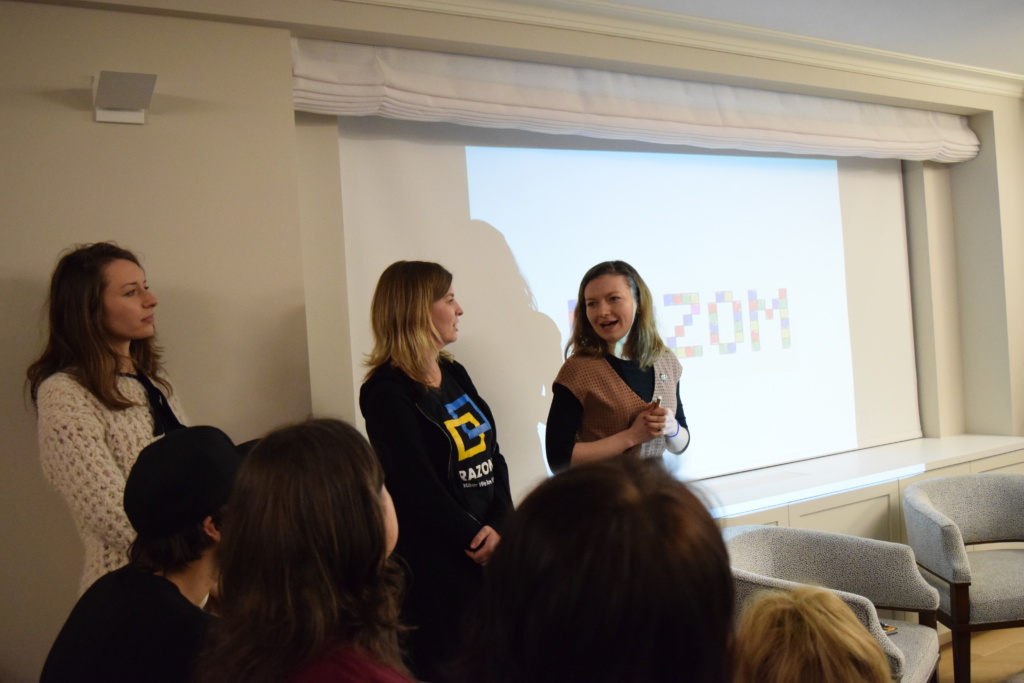
This Ukrainian Night in New York was a great success. Please see more photos from the evening by Kasia Zabavko below.
Watch a recording of the livestreamed event on Razom facebook page.
